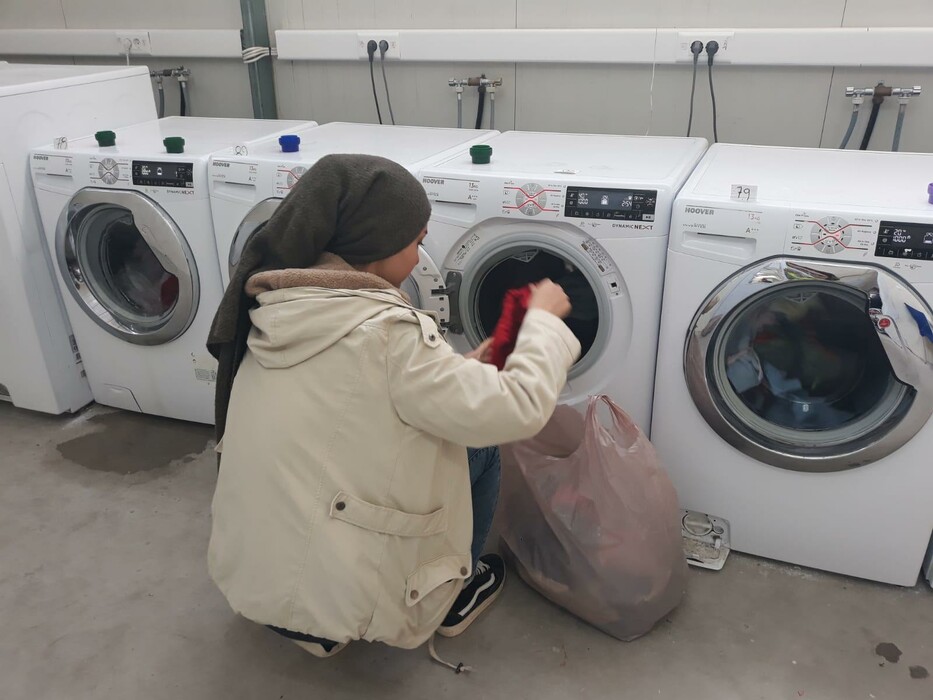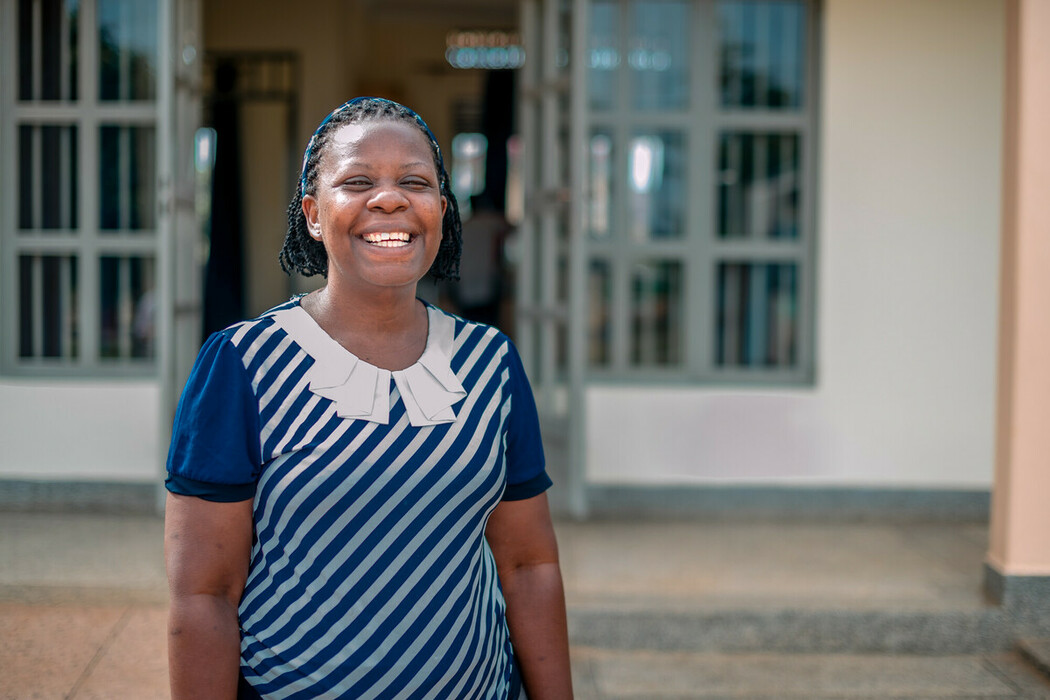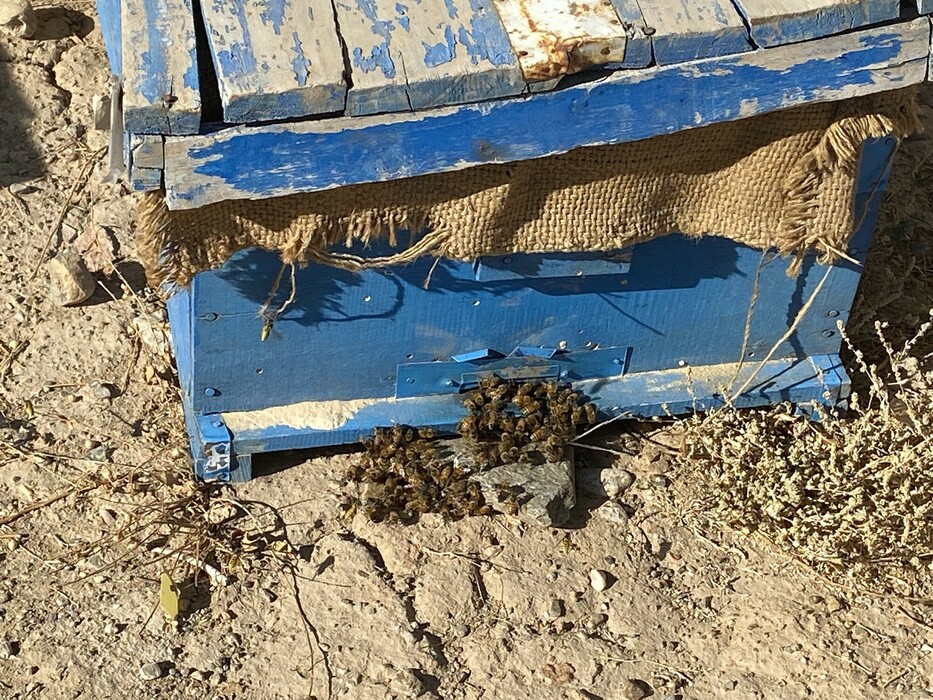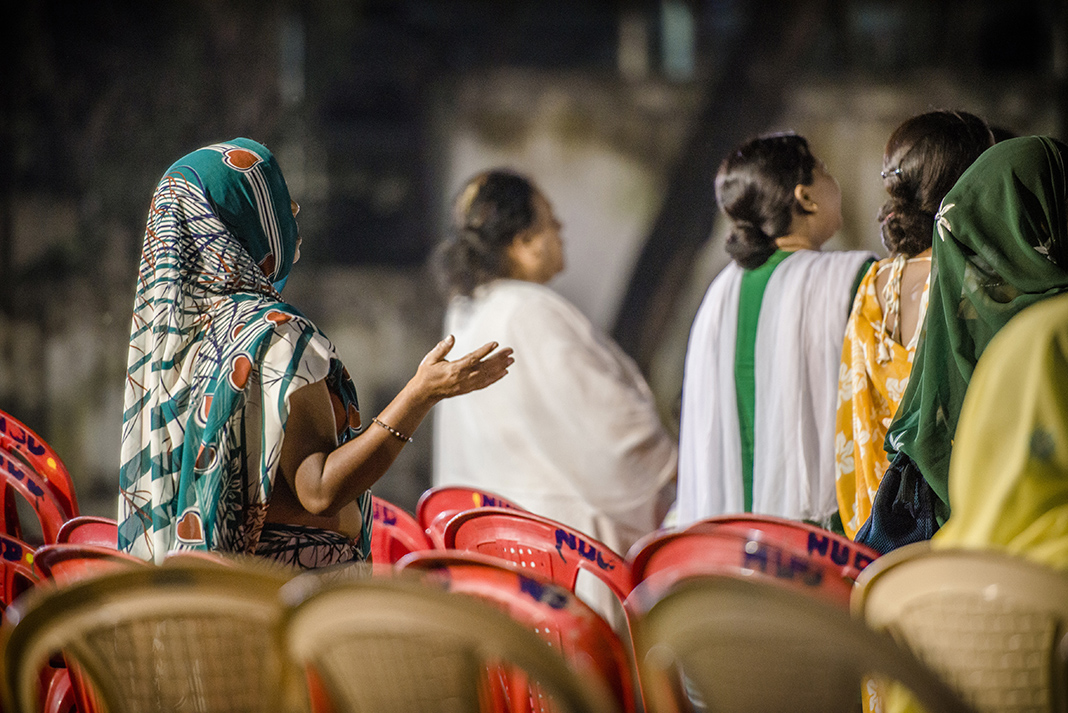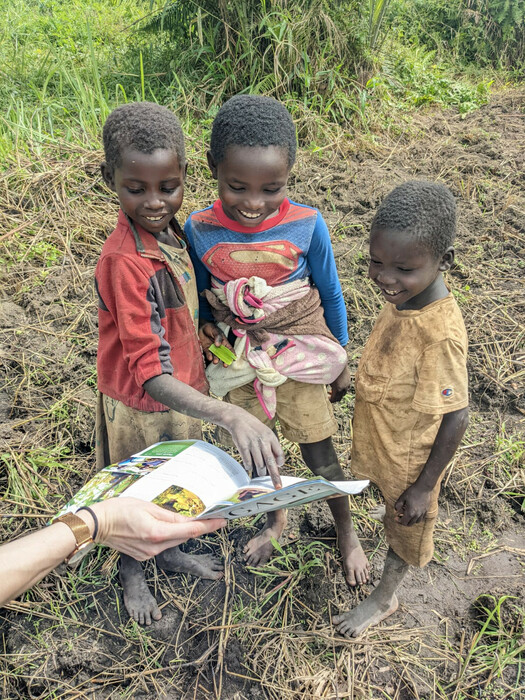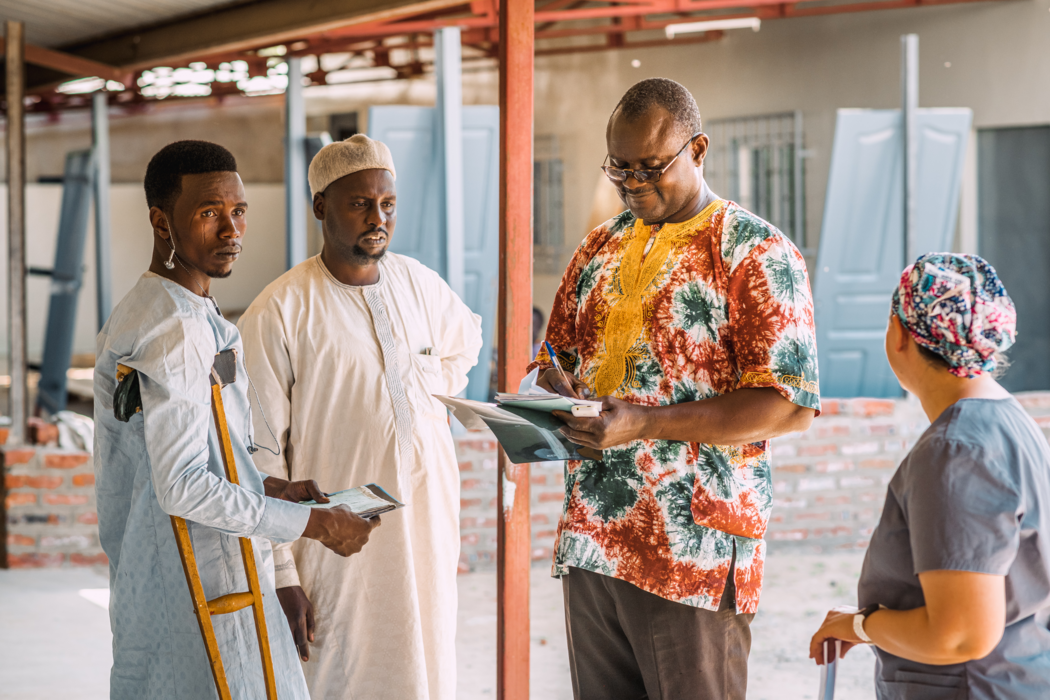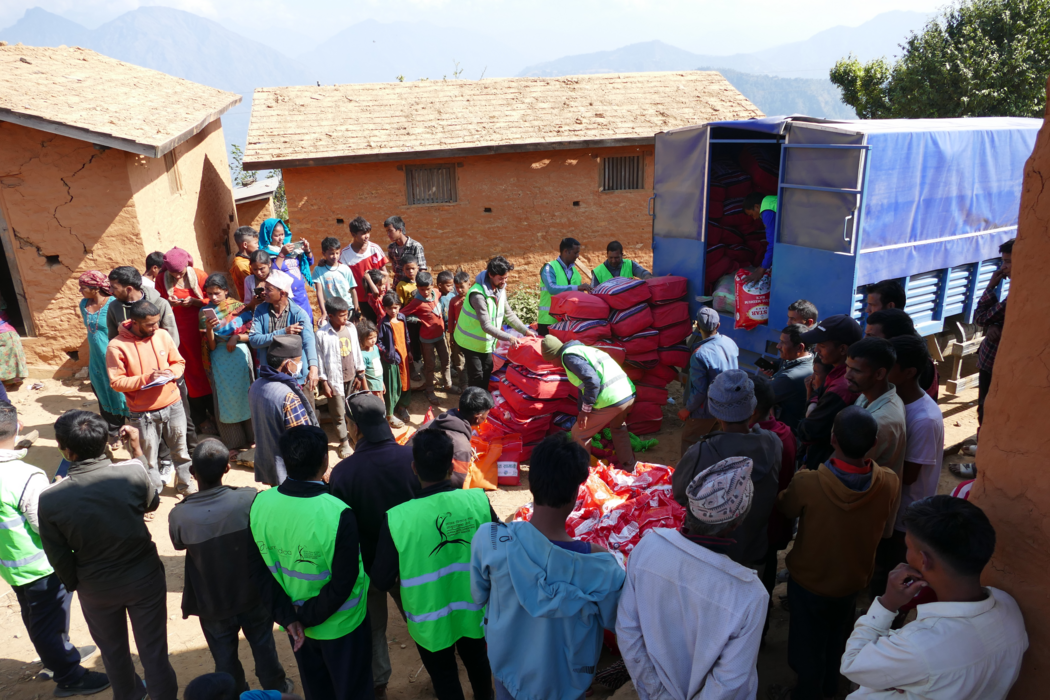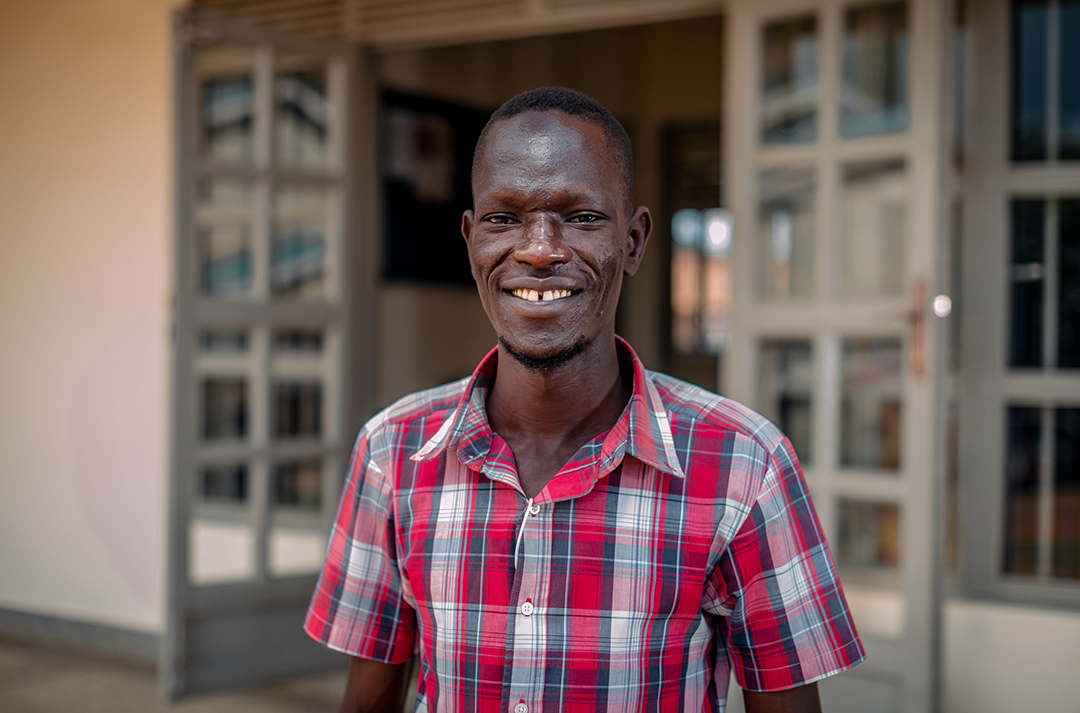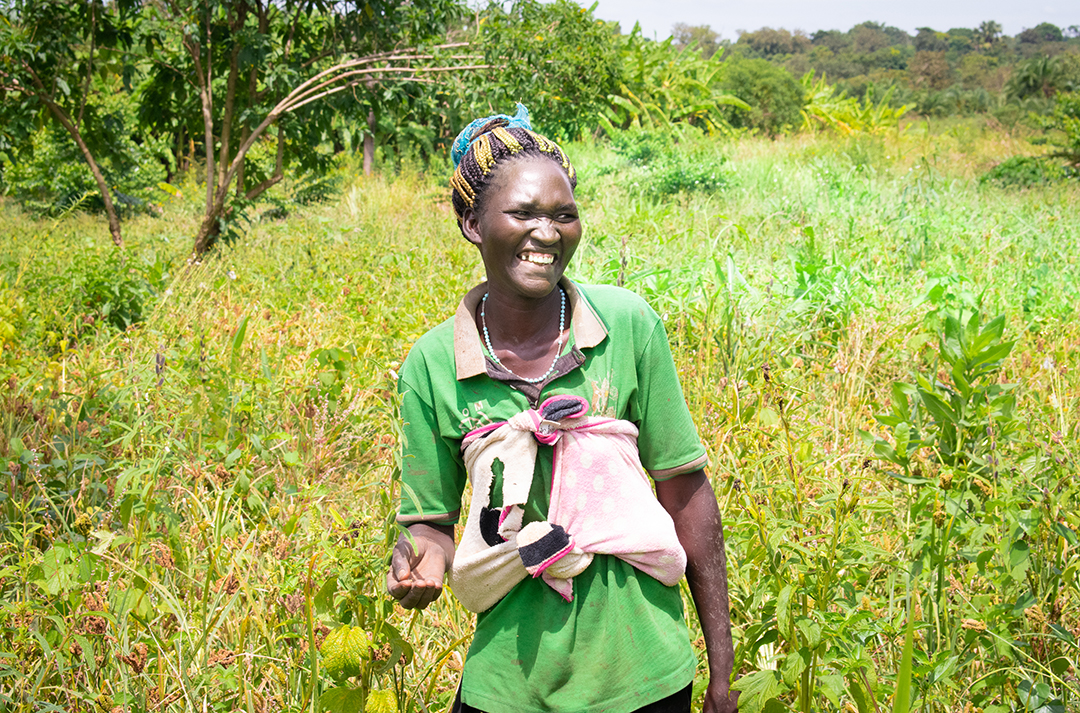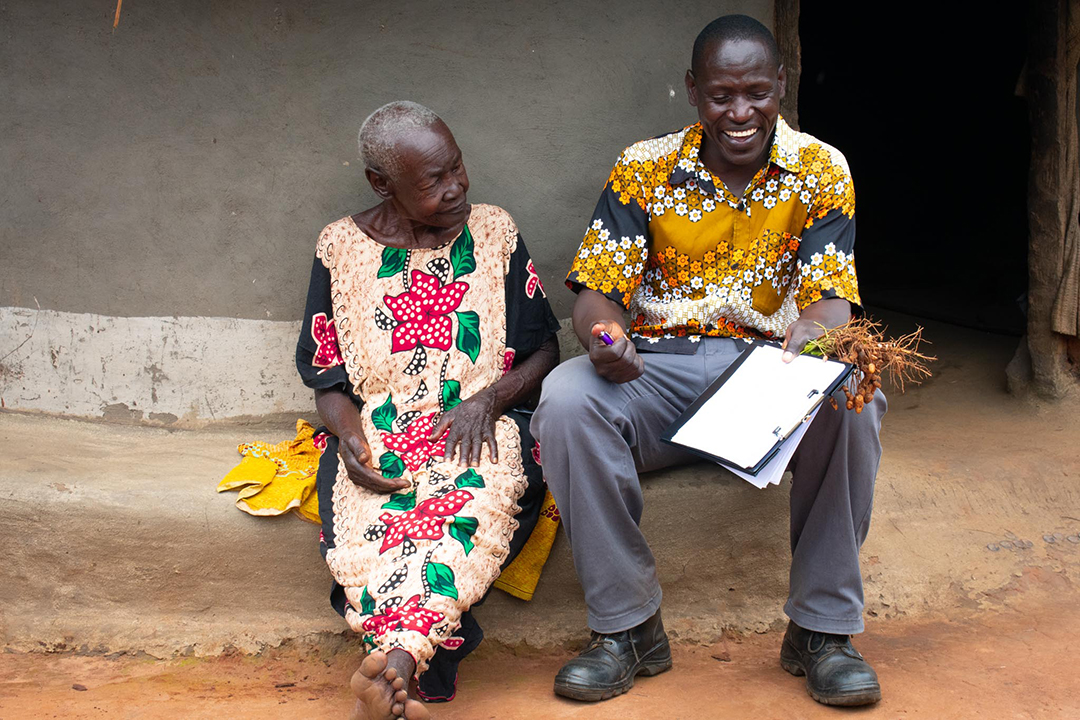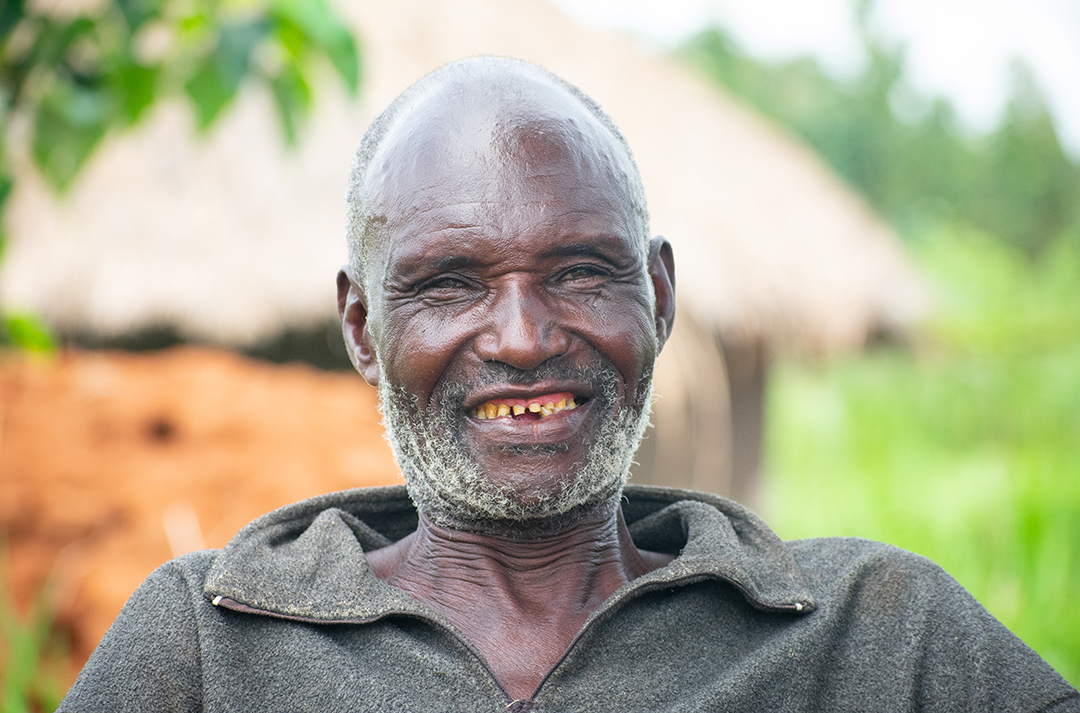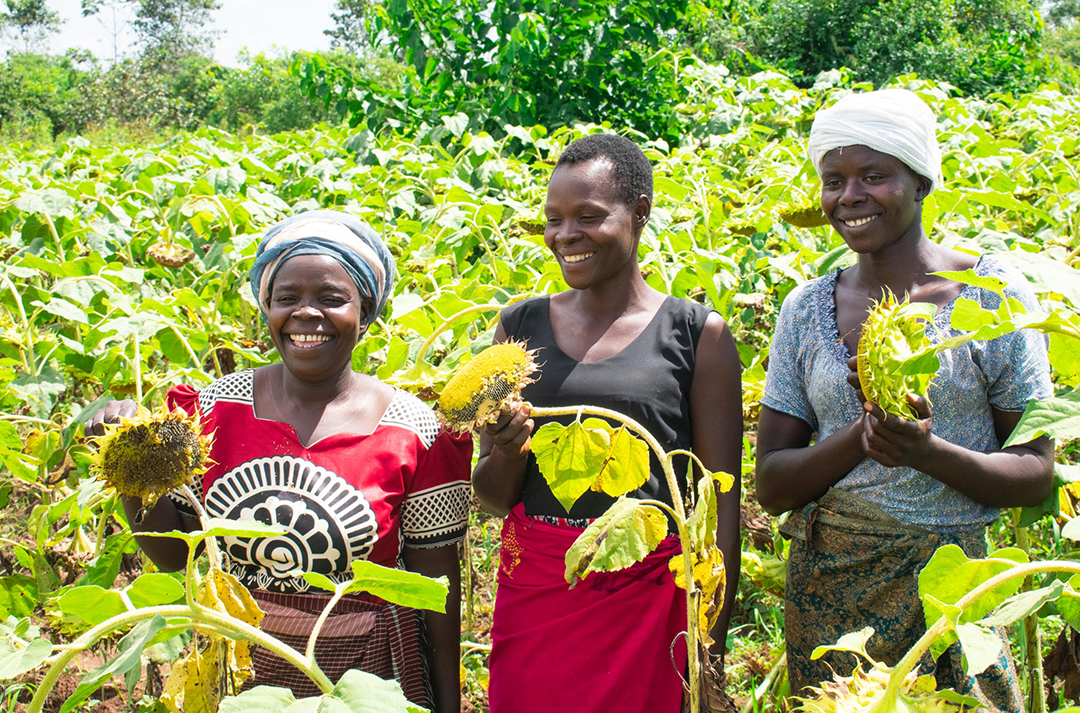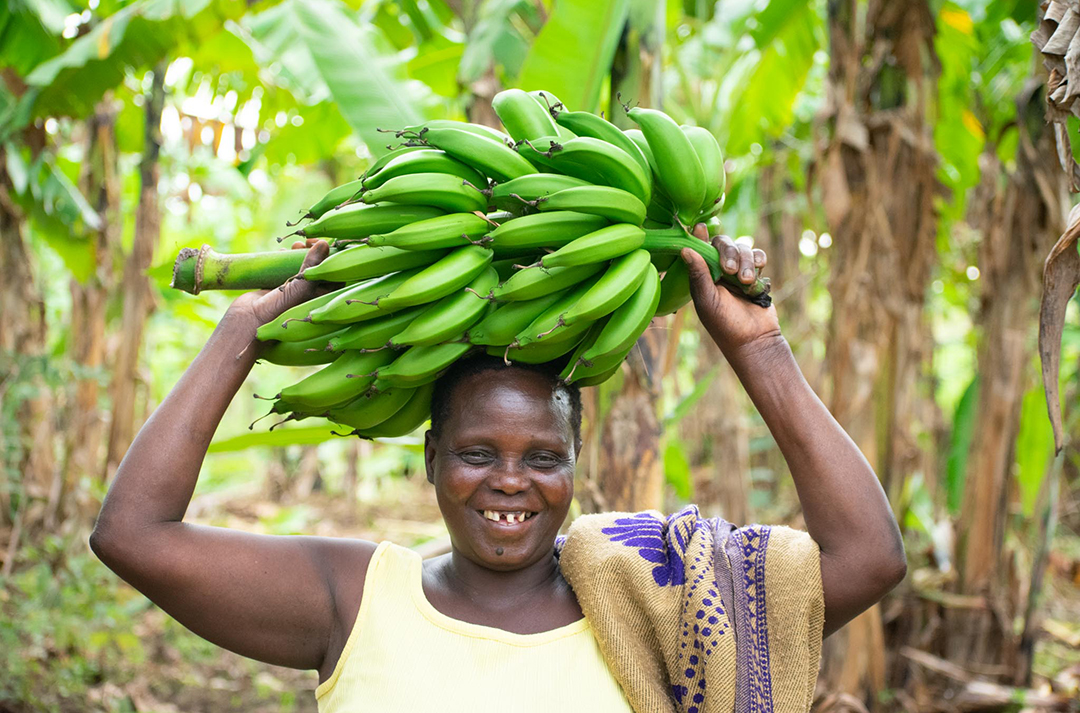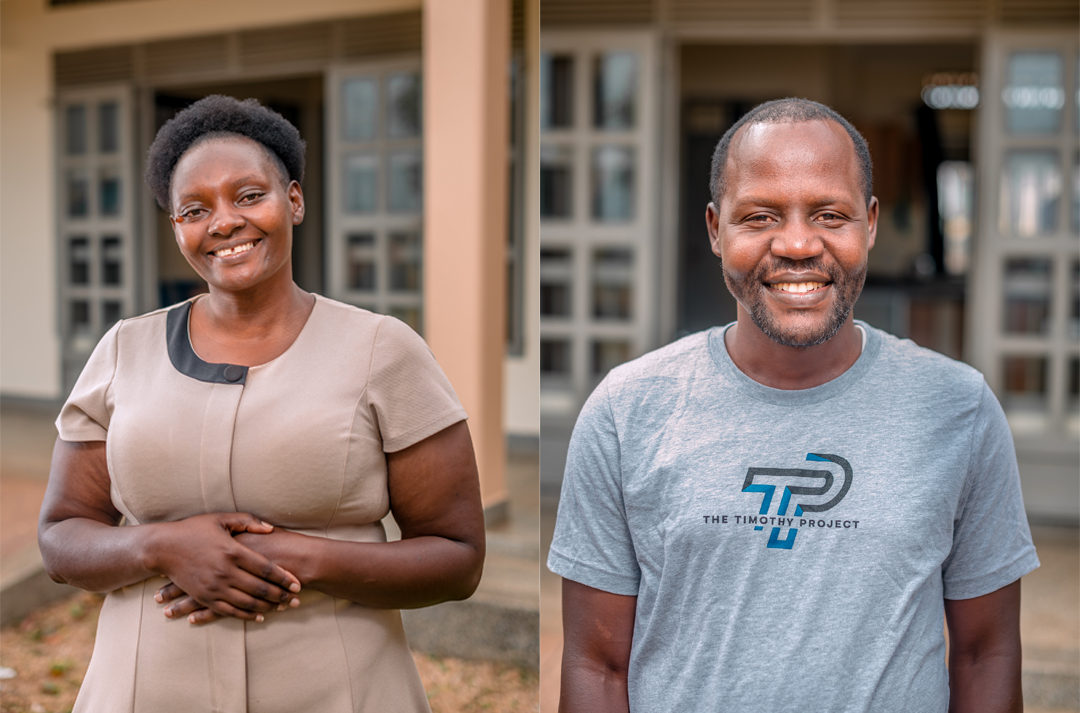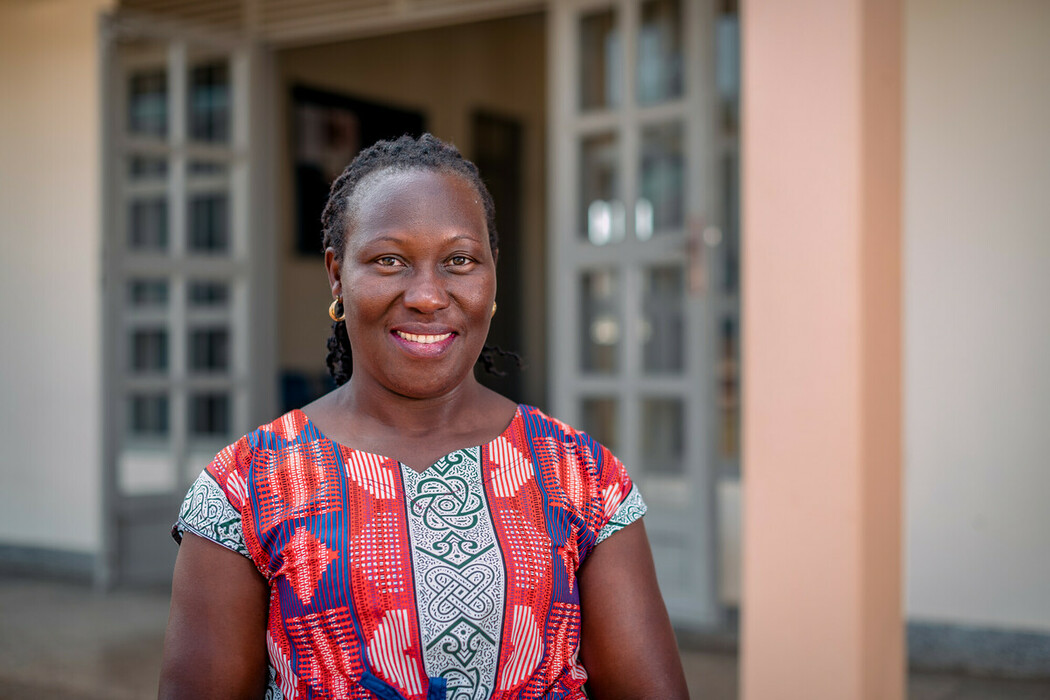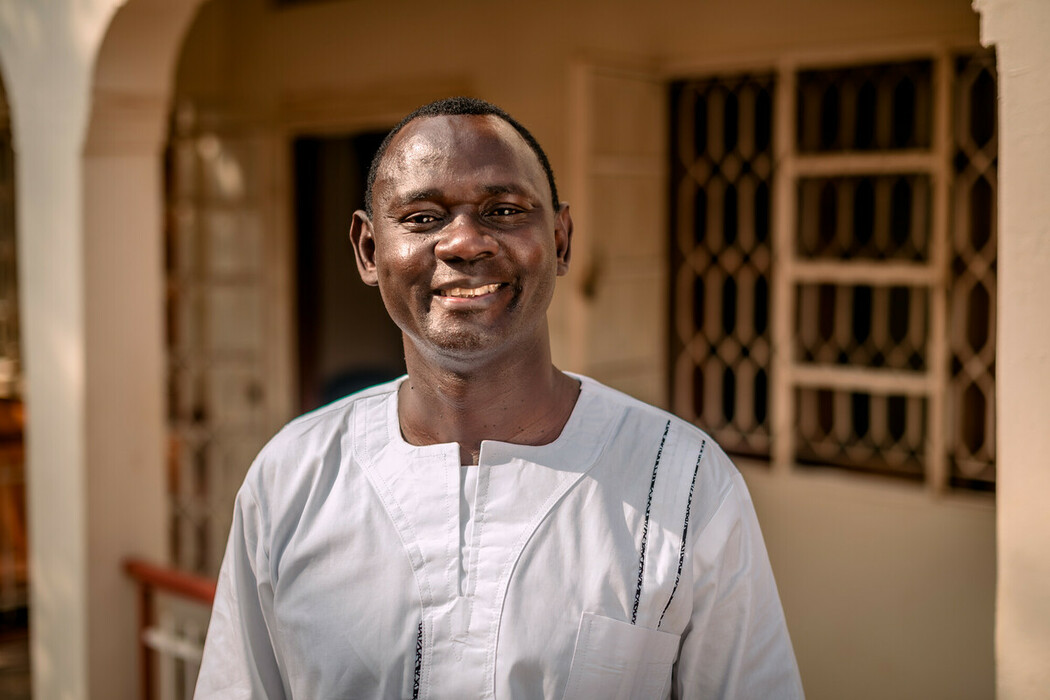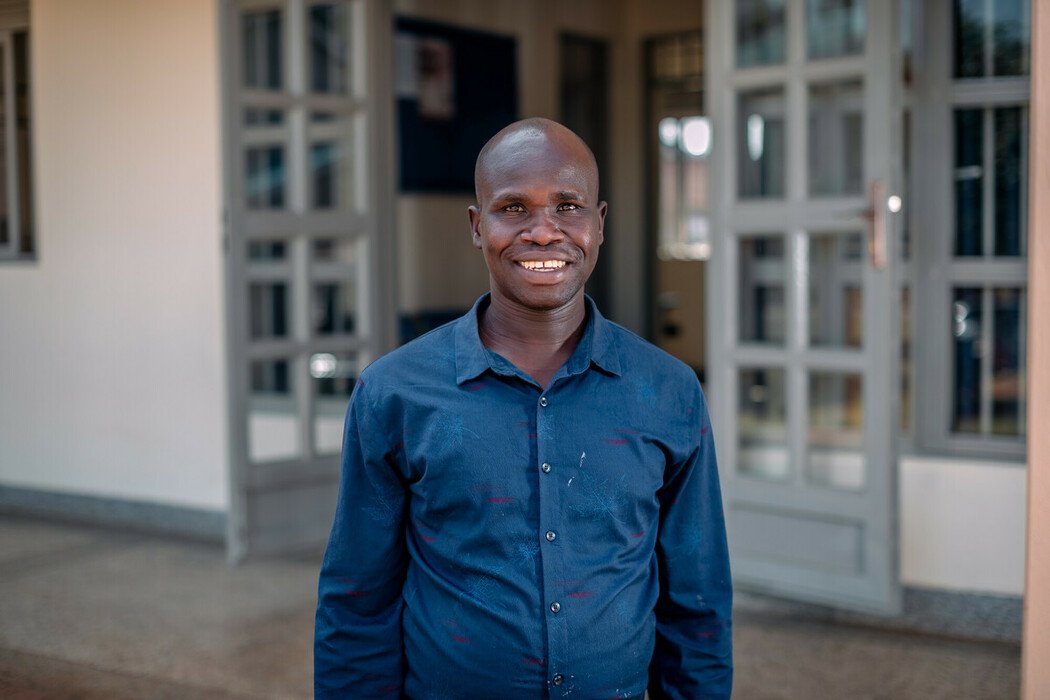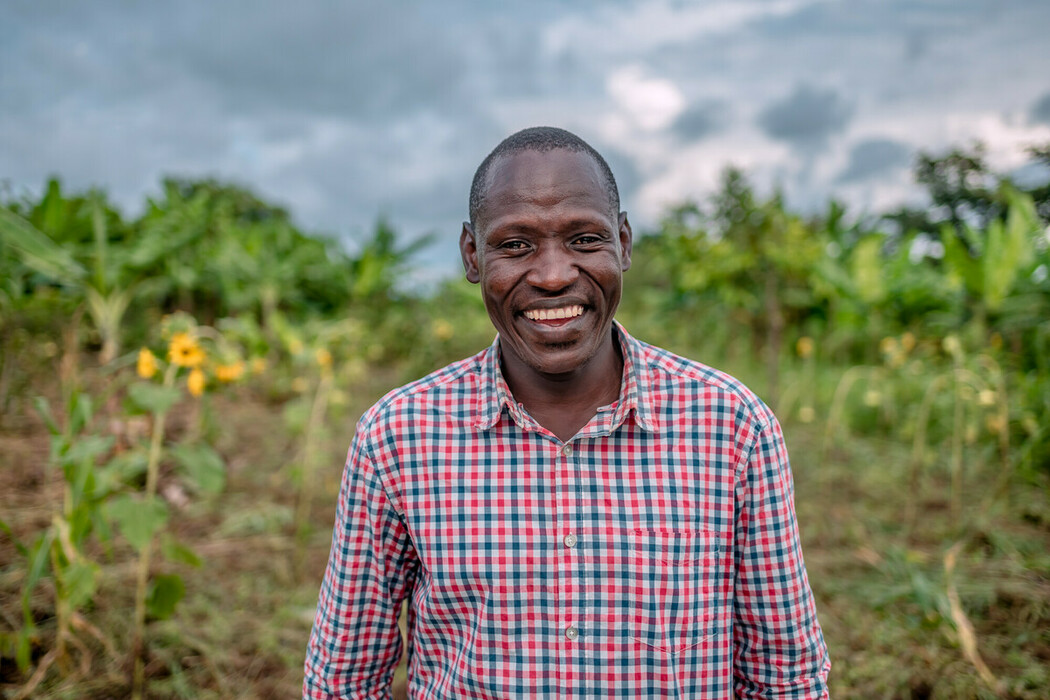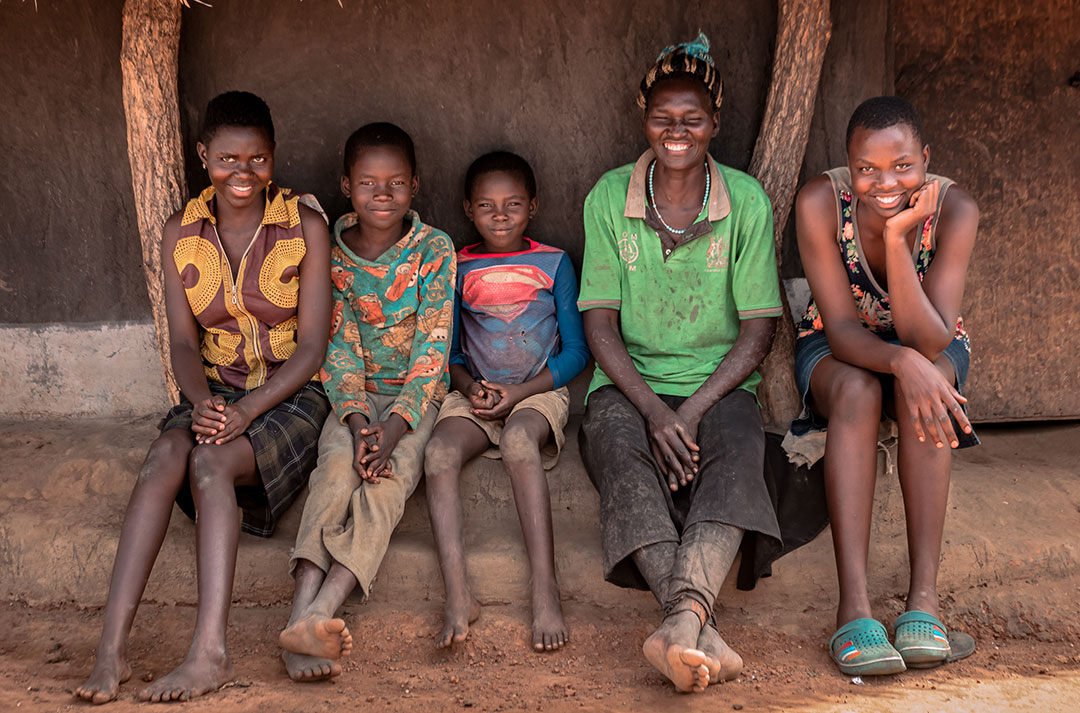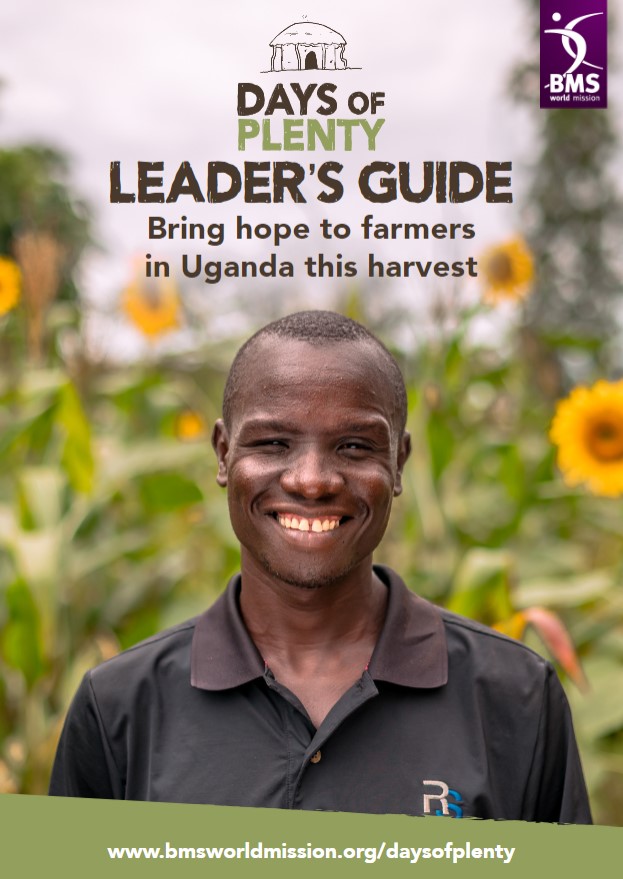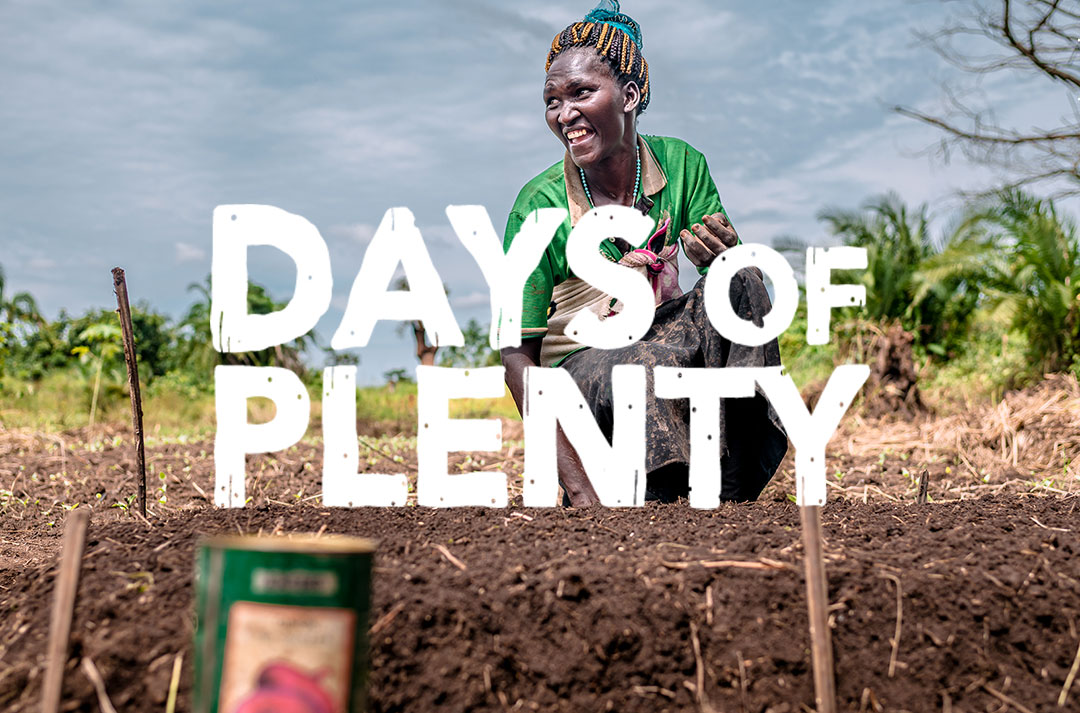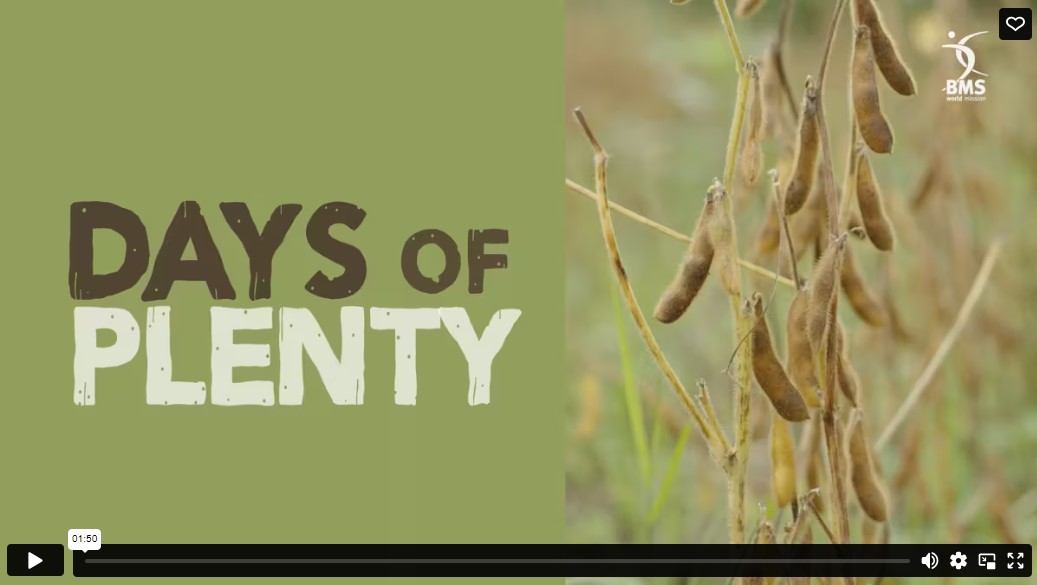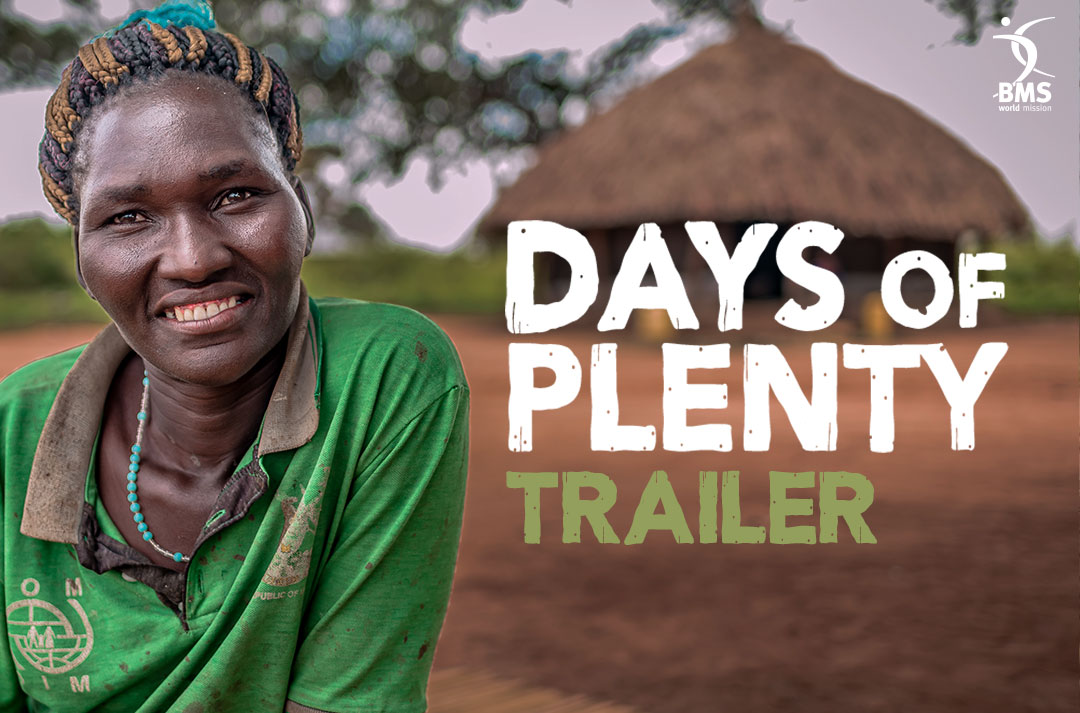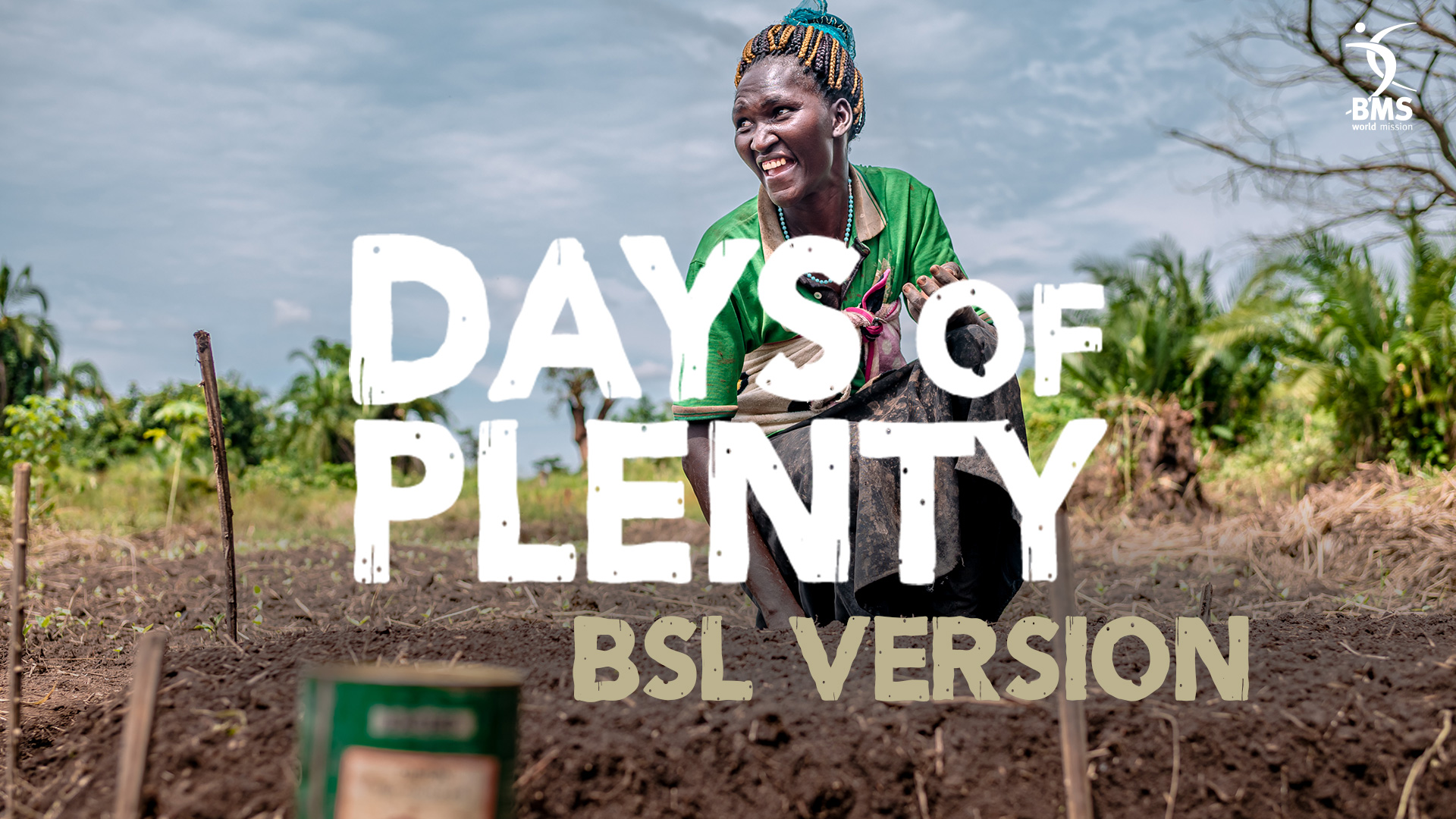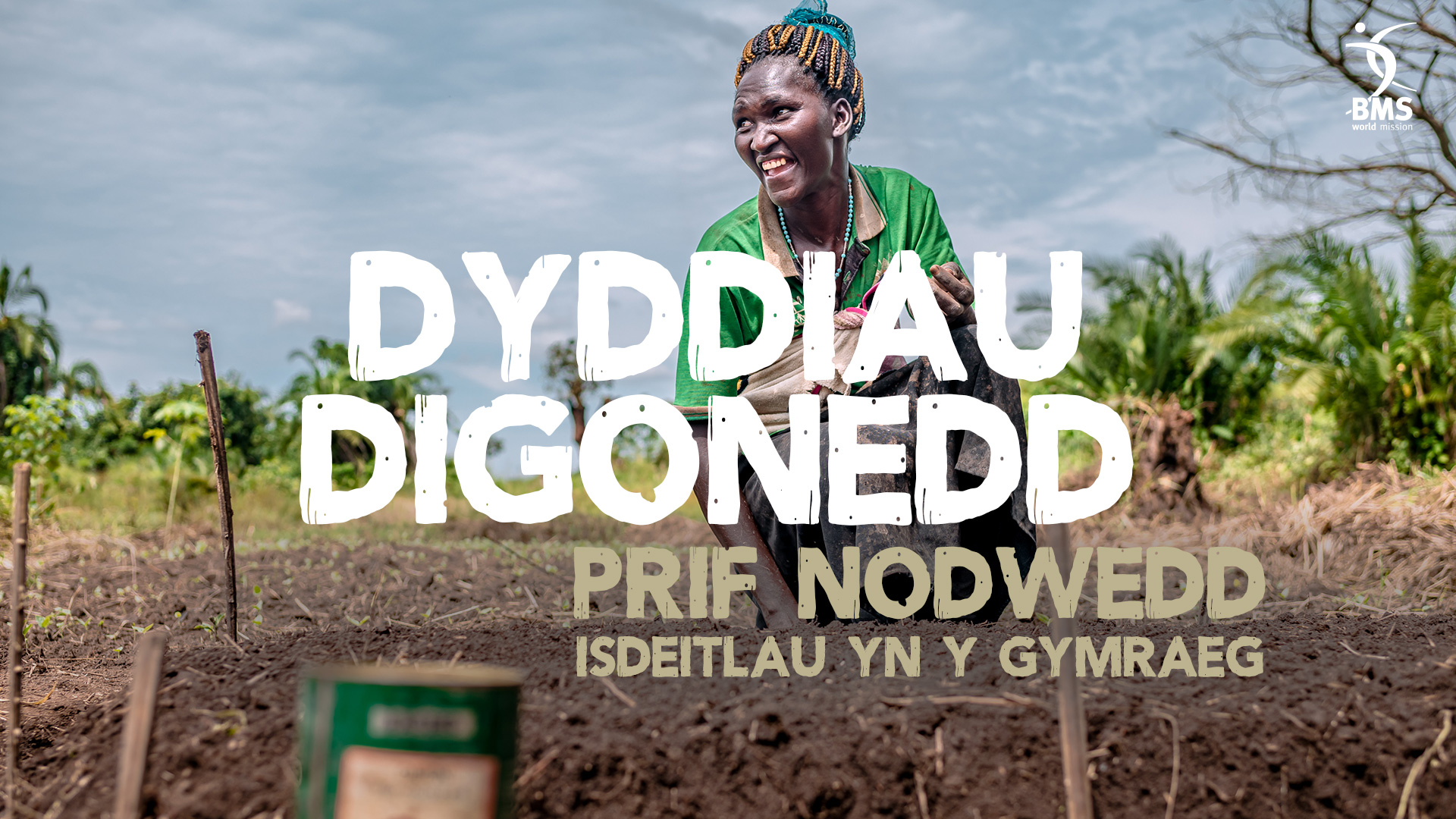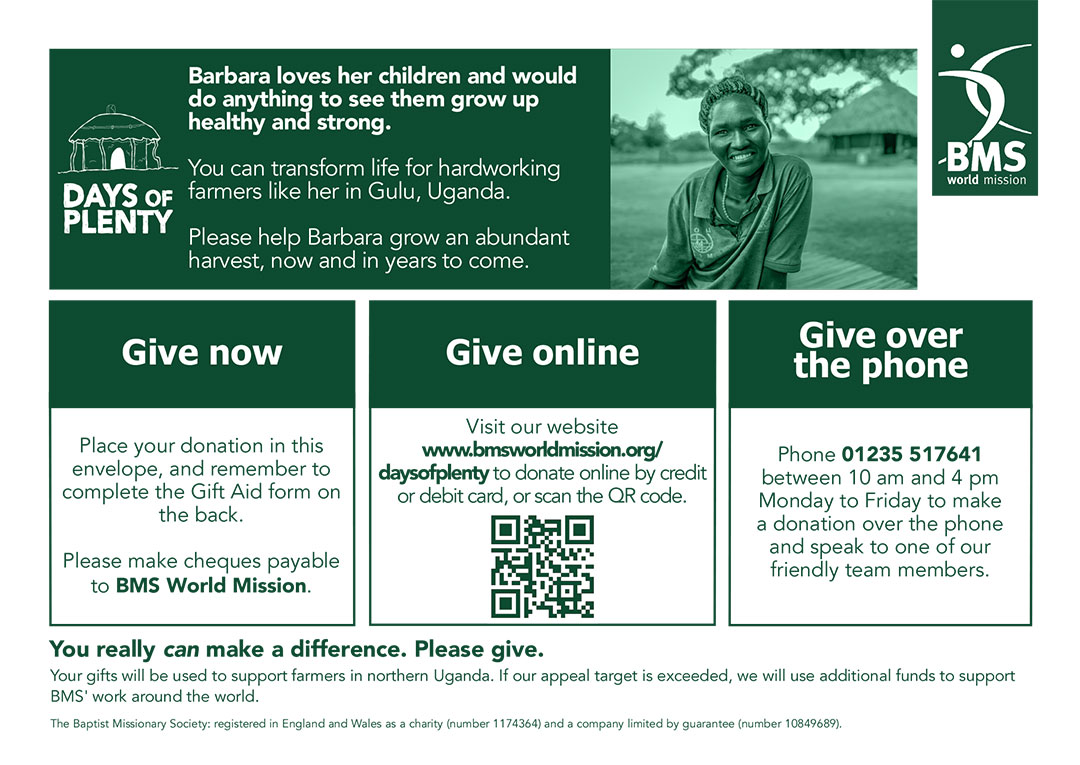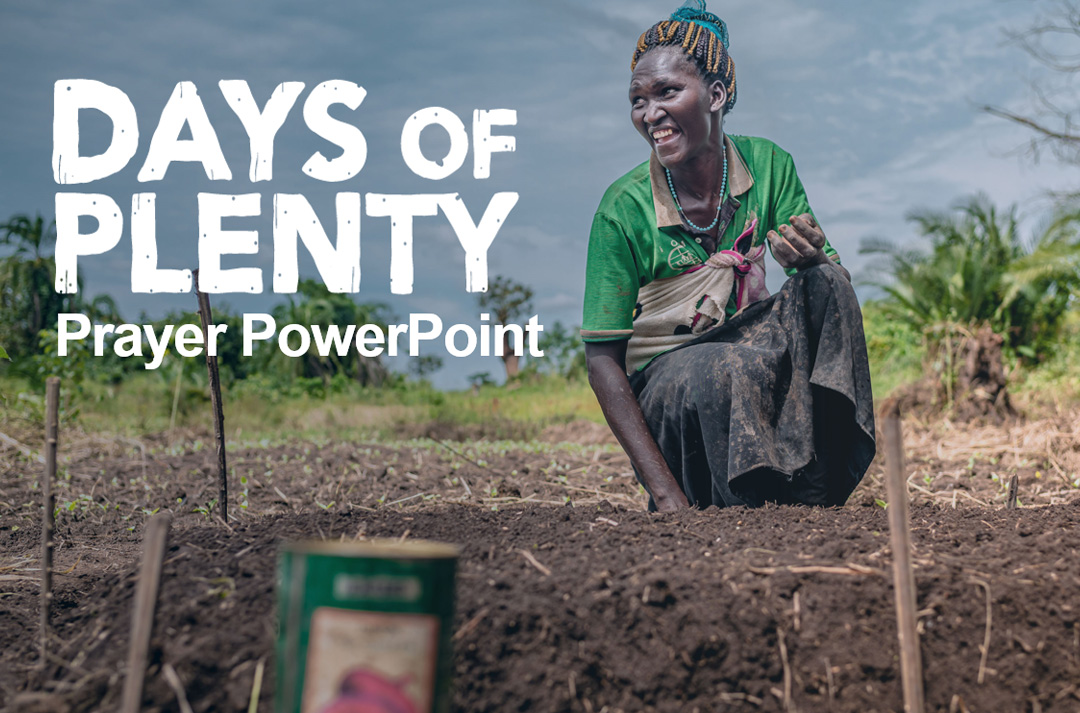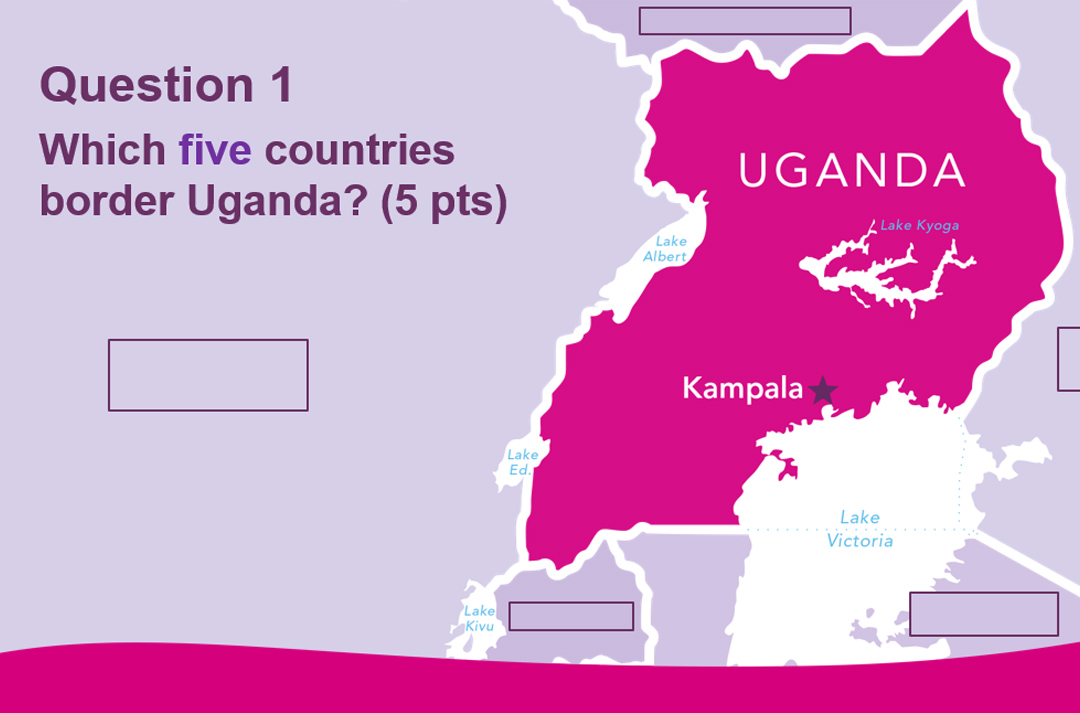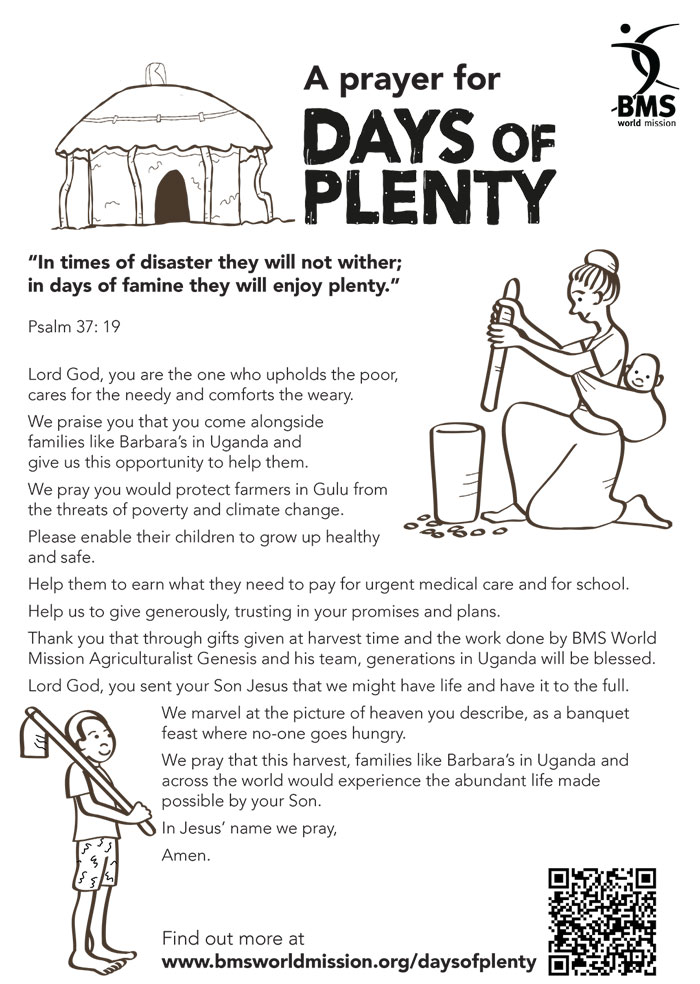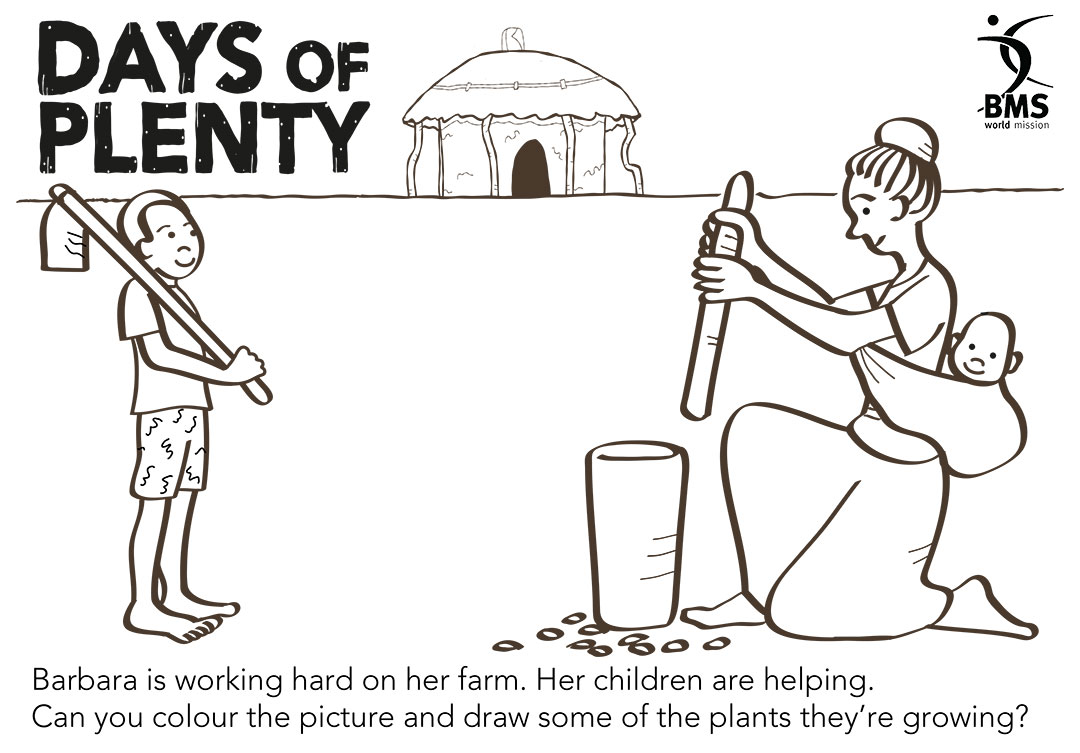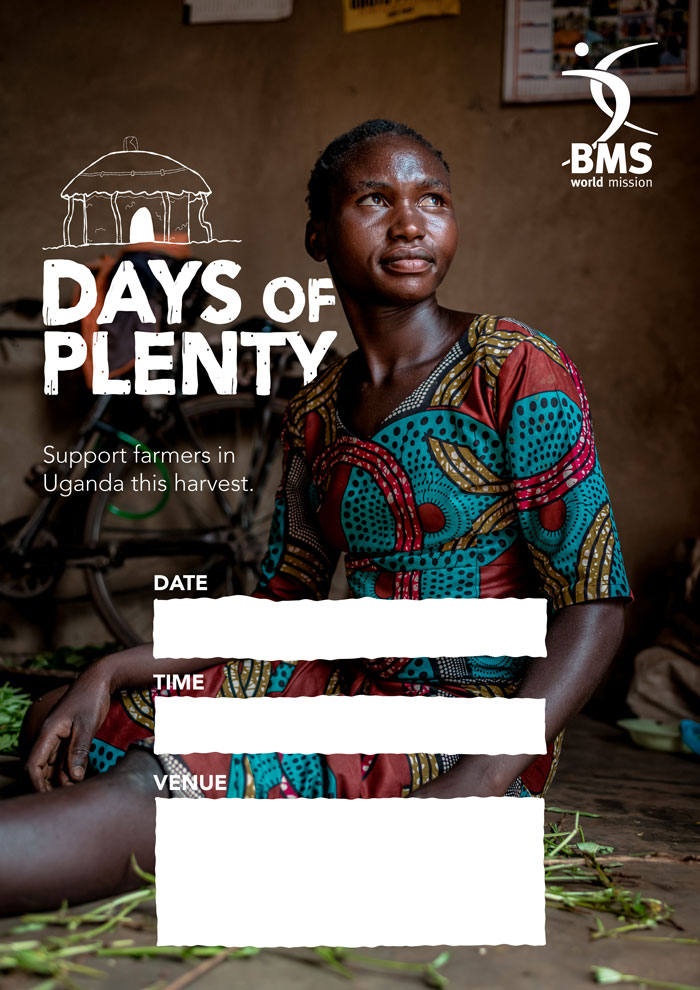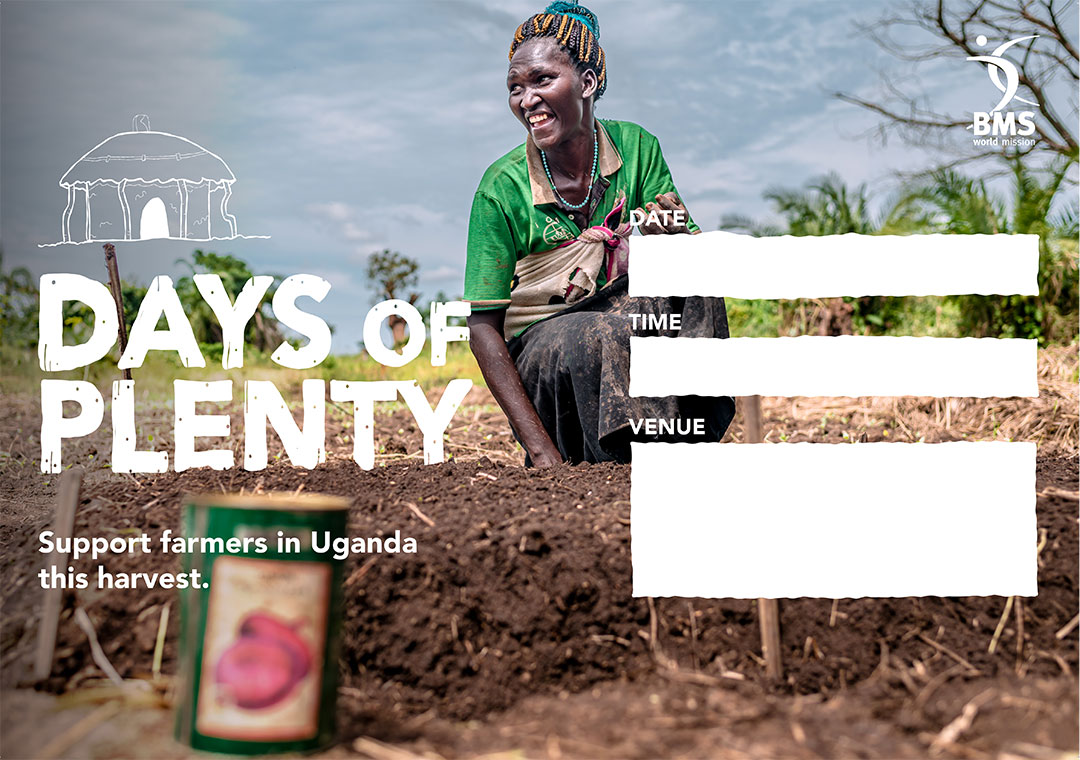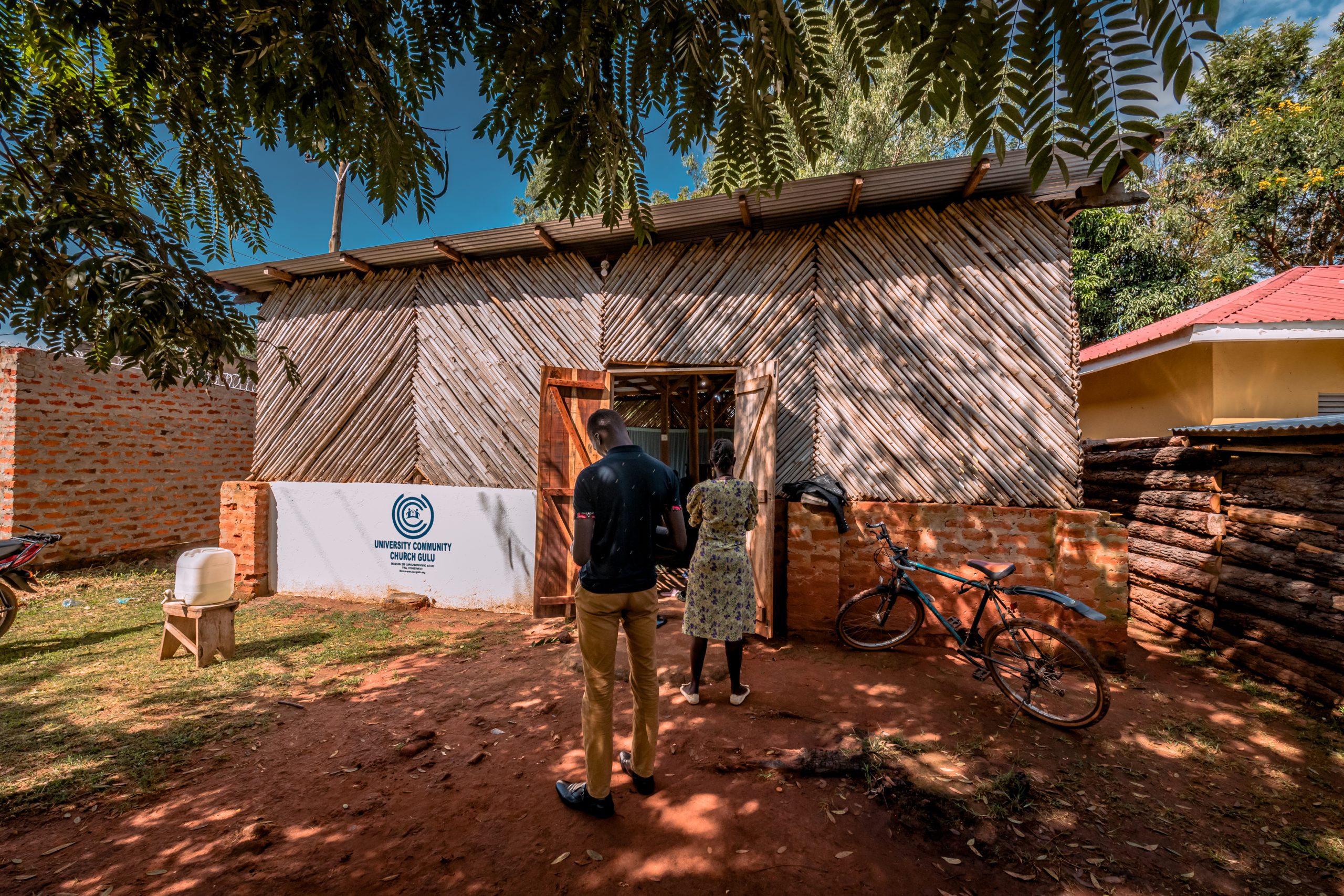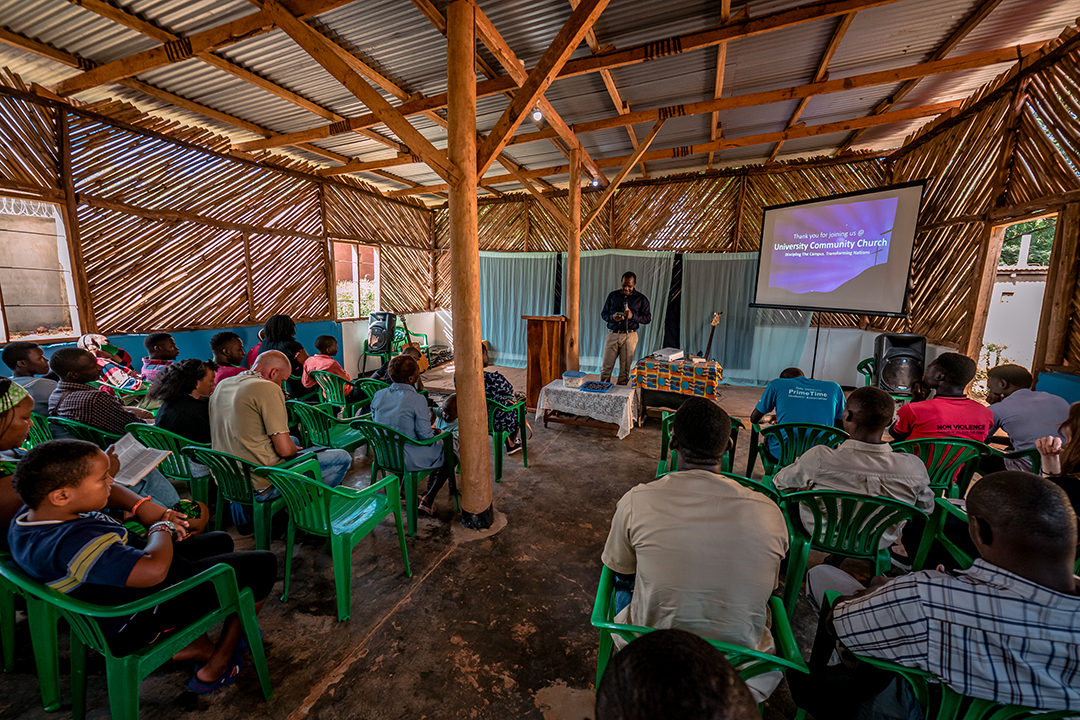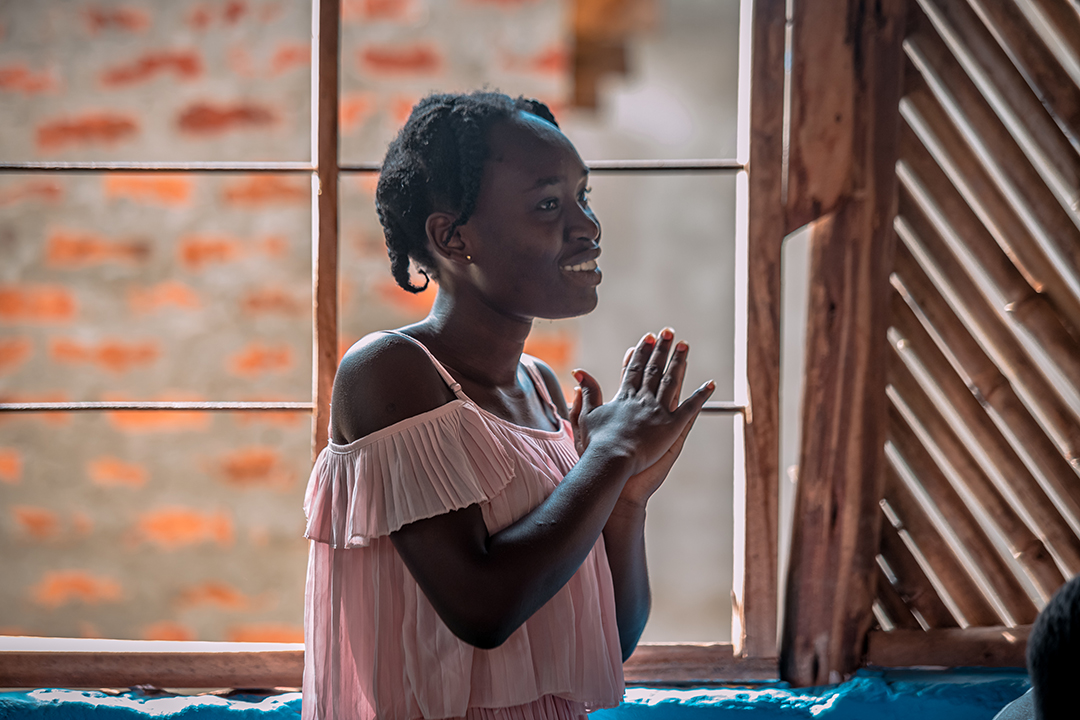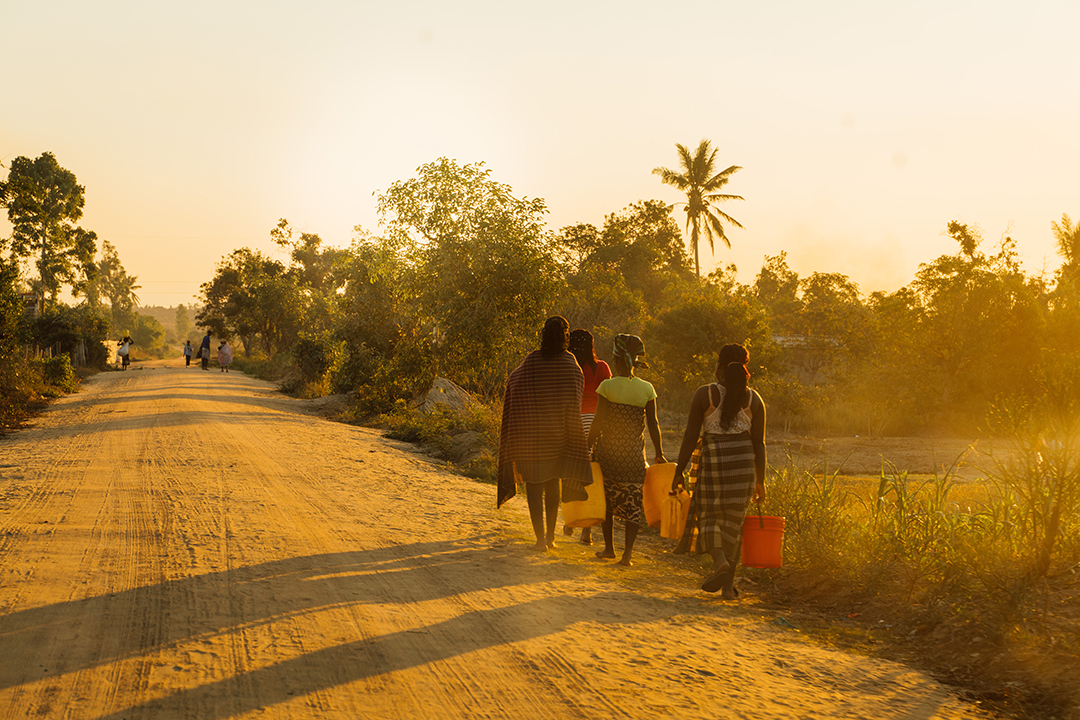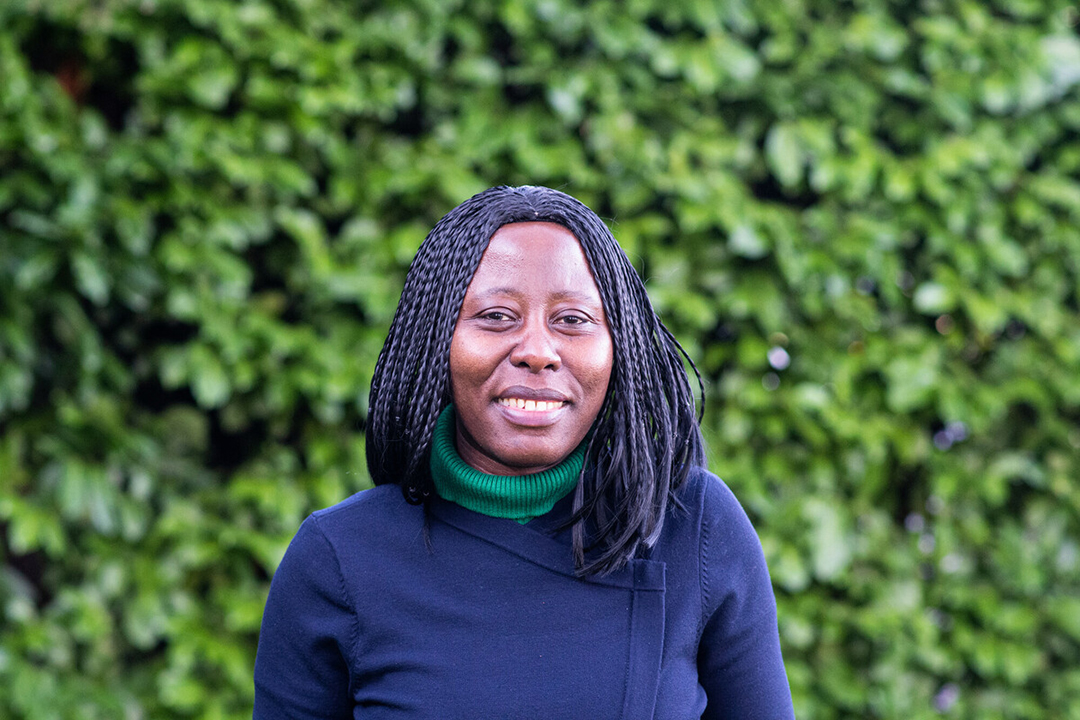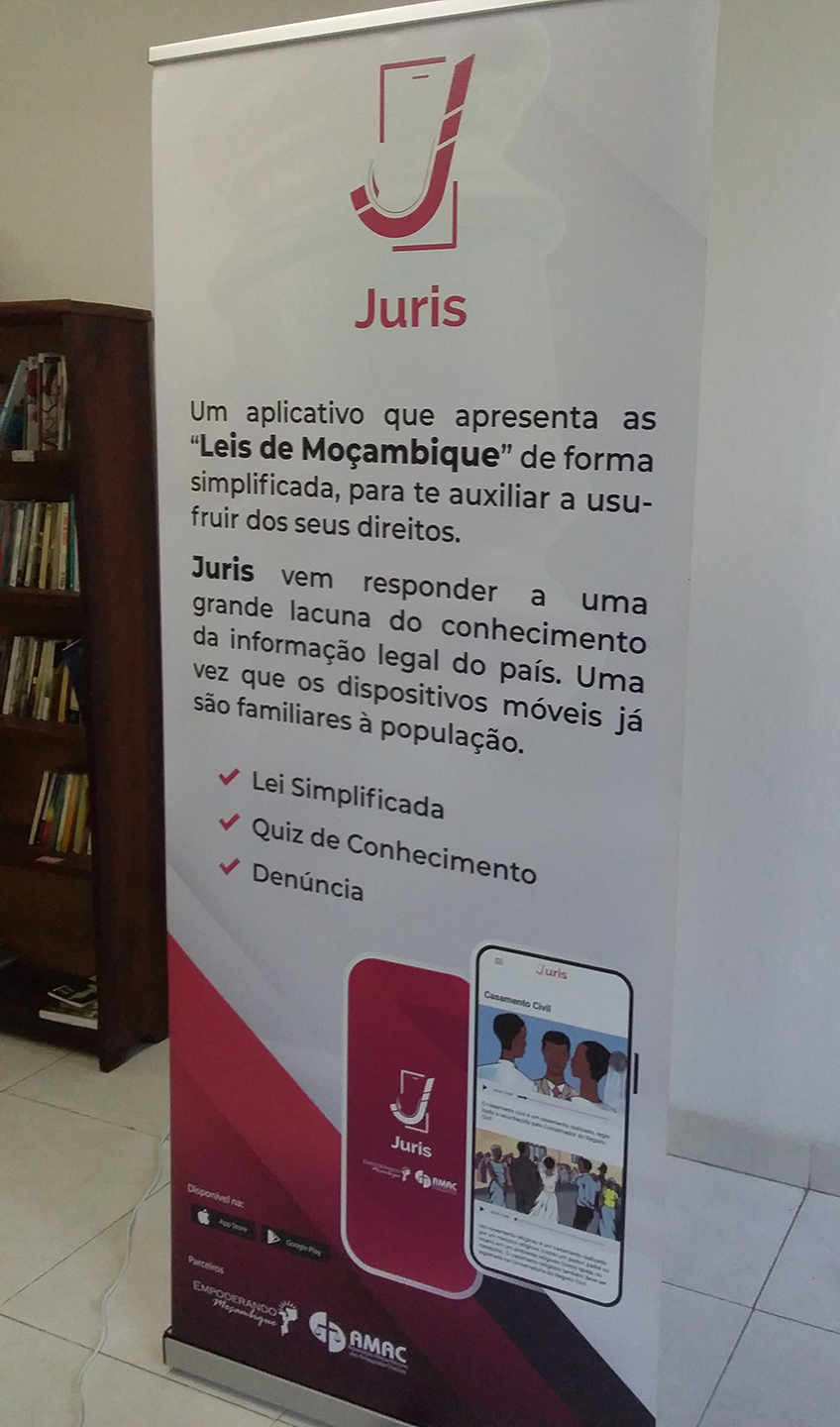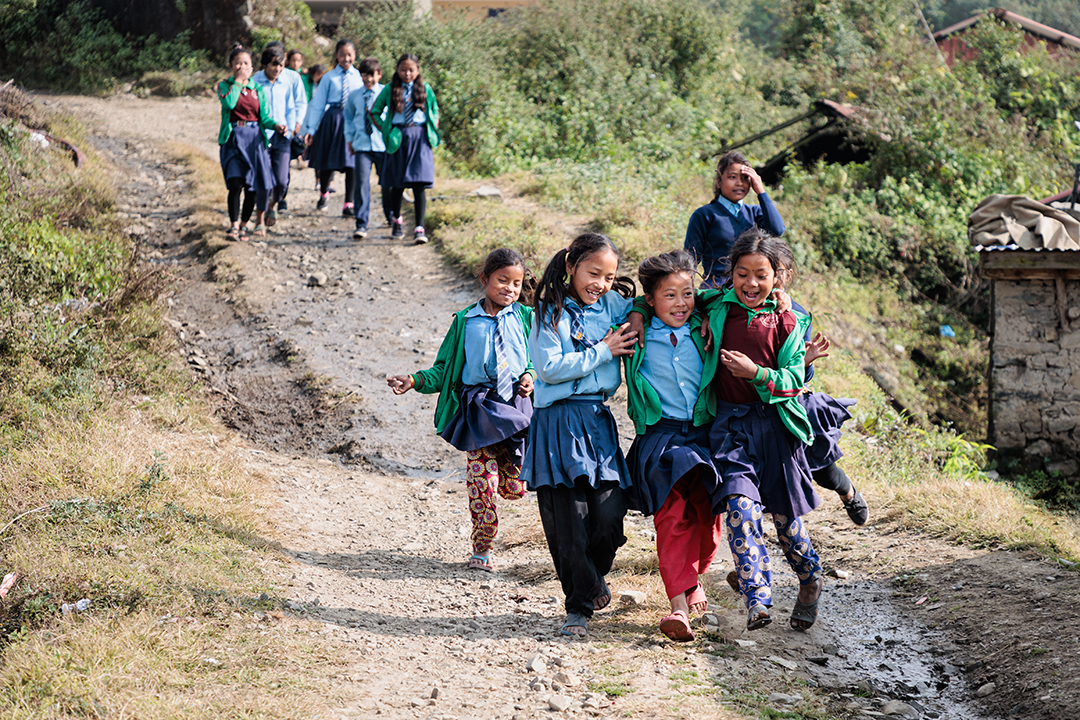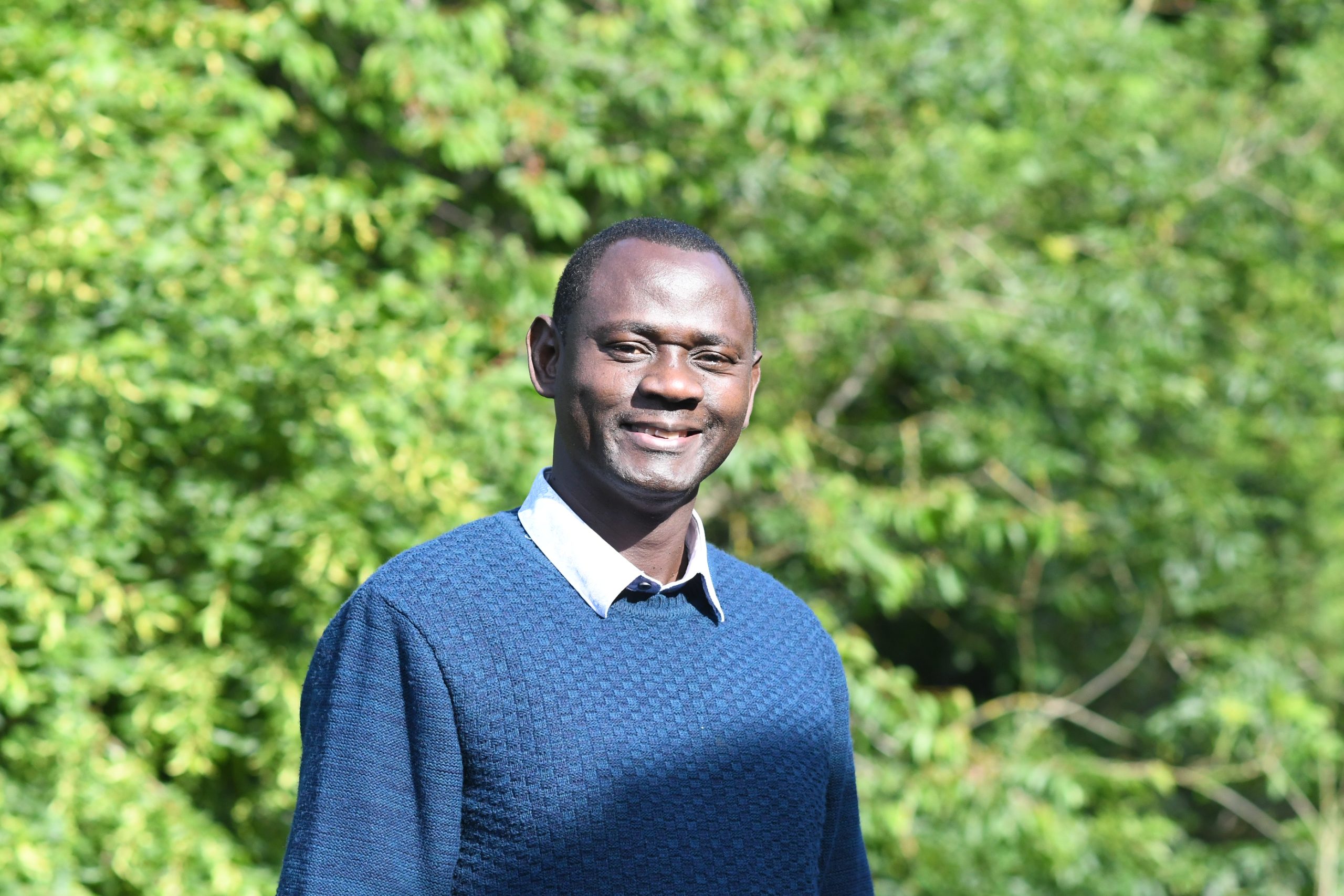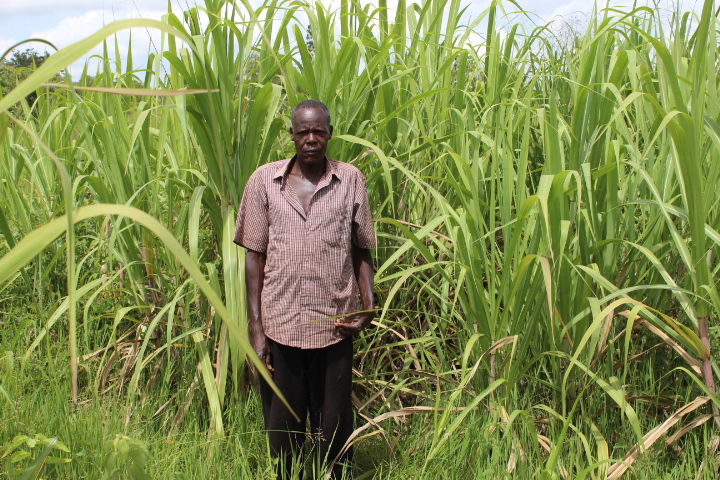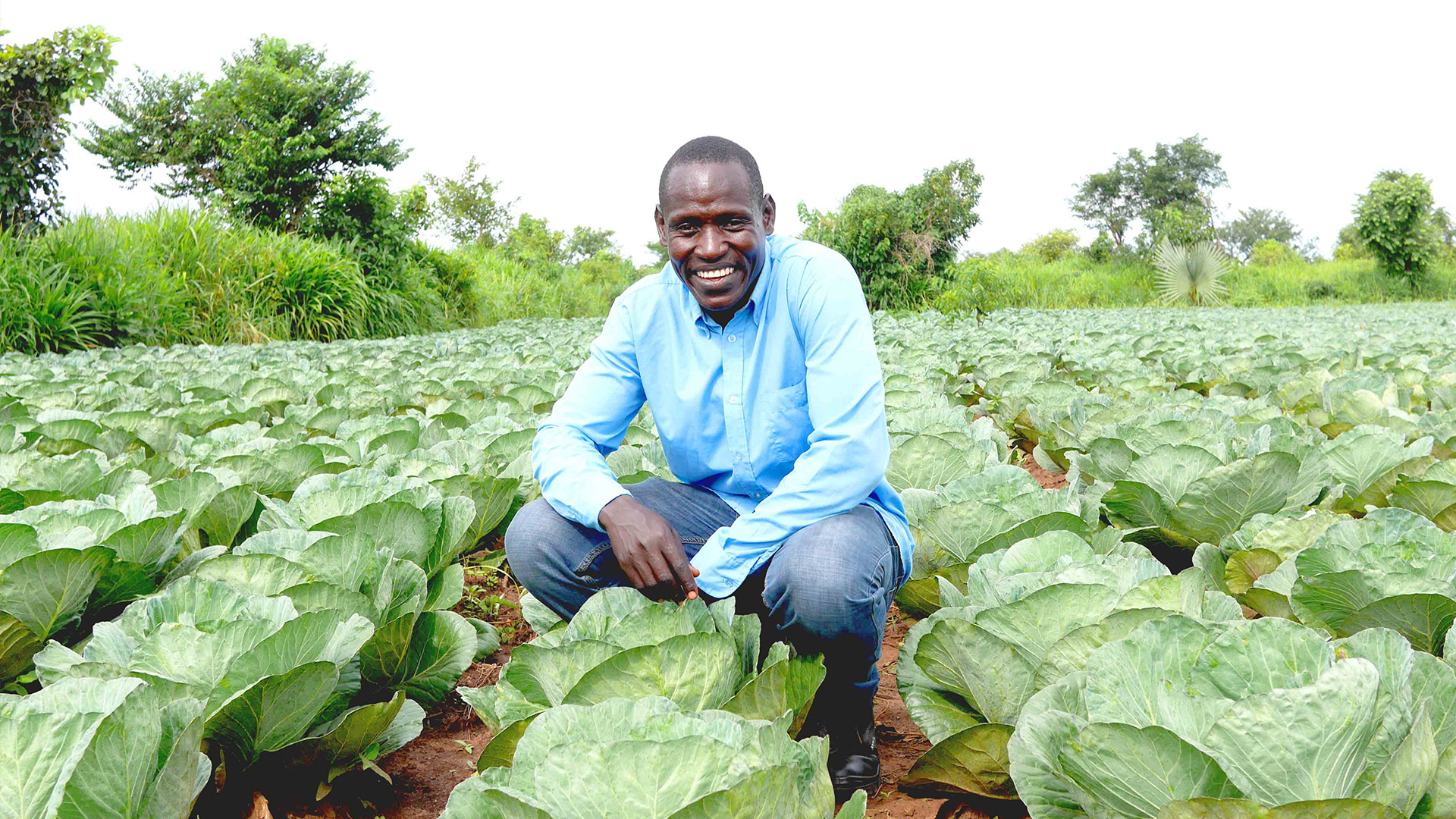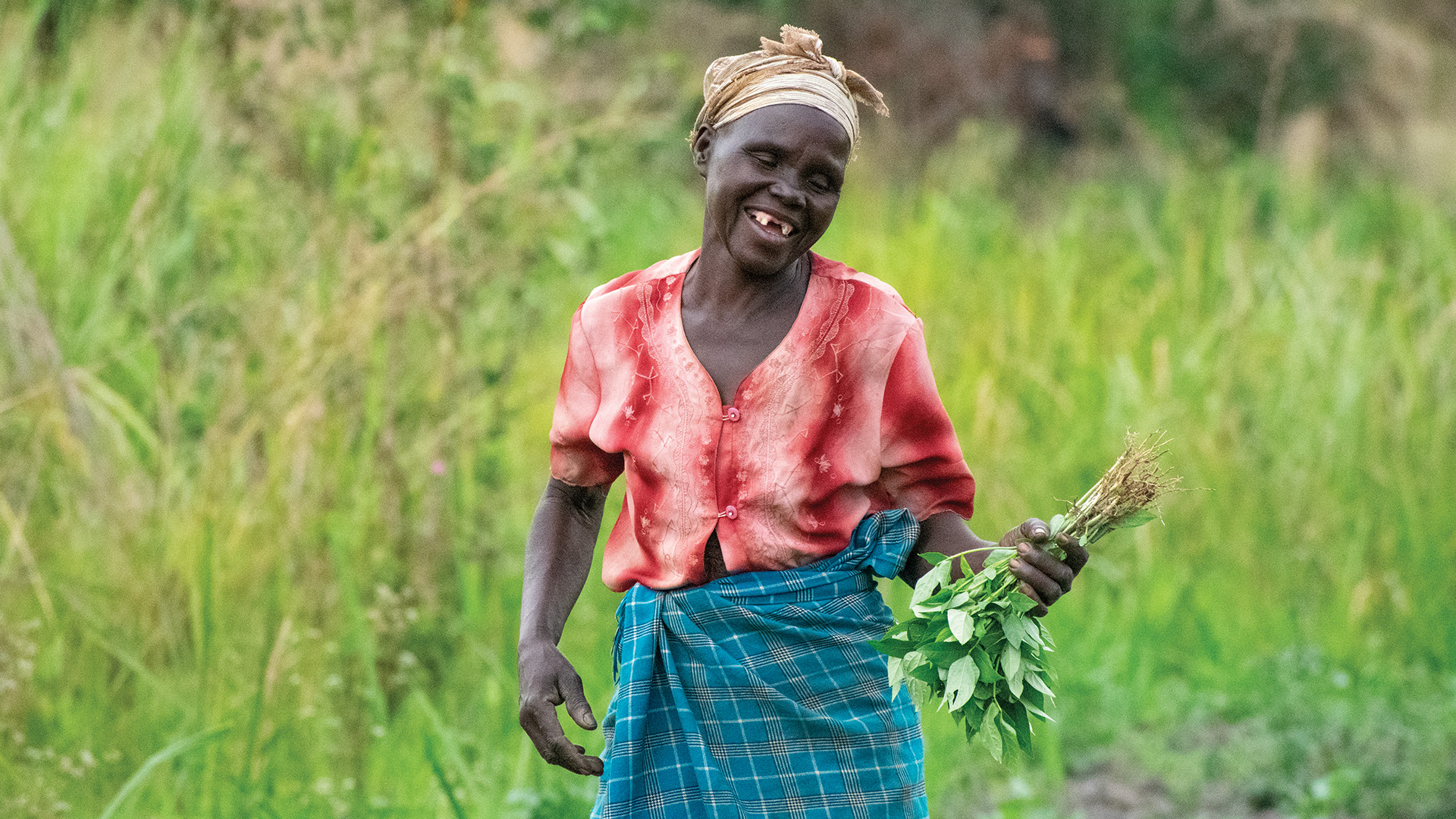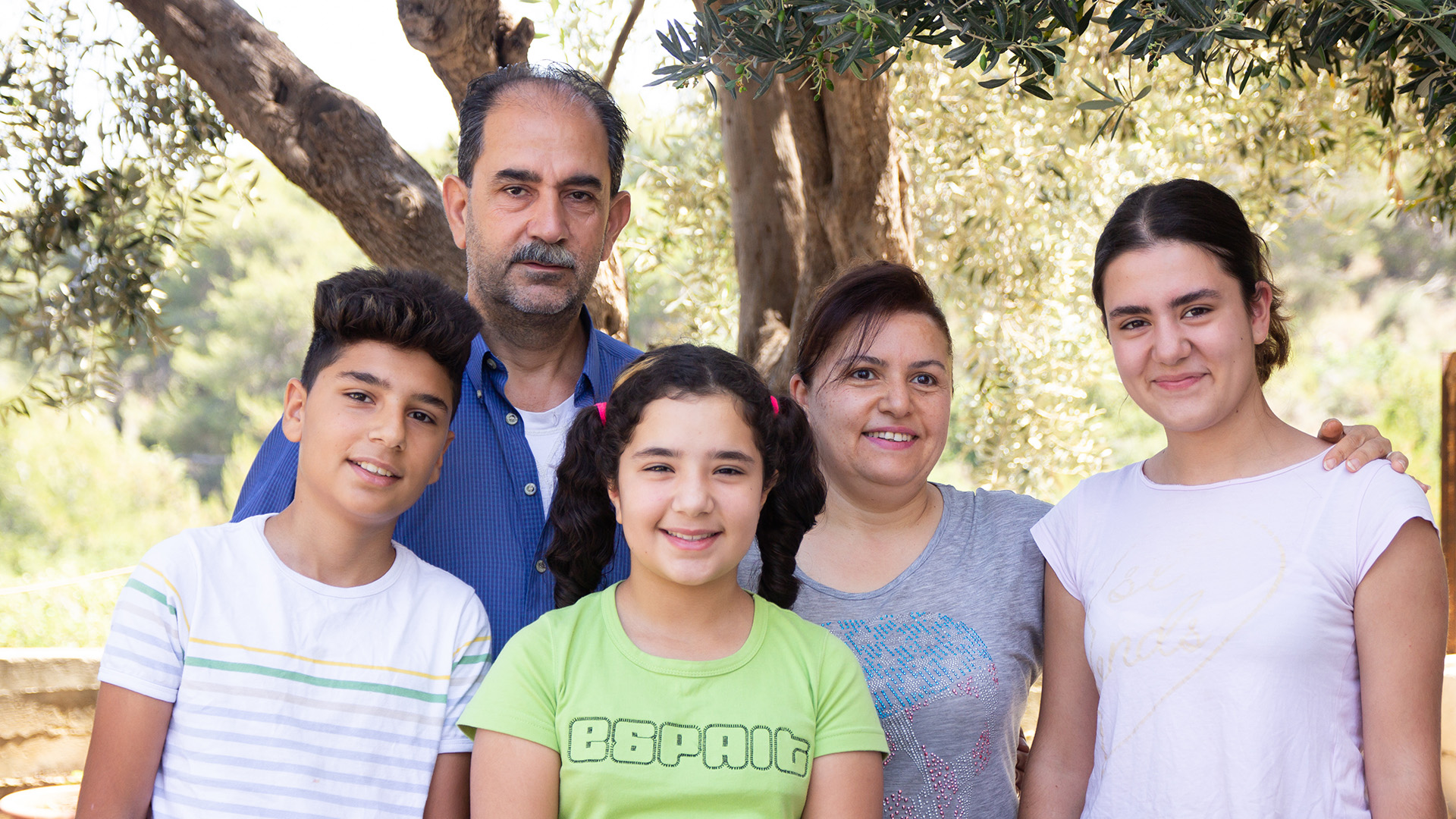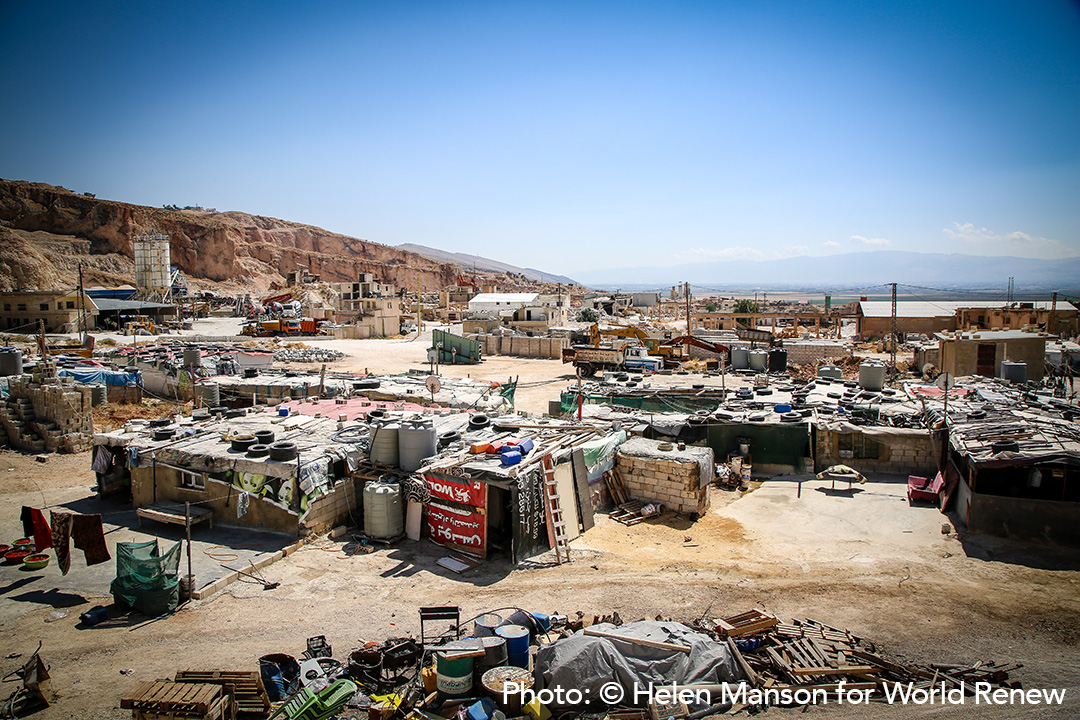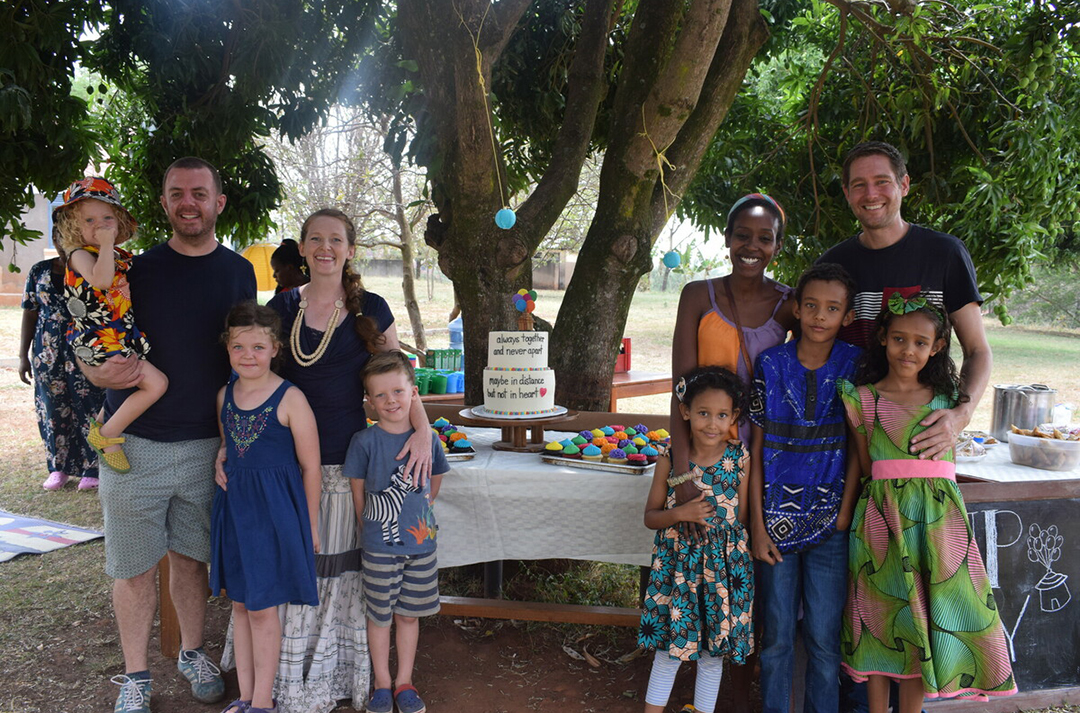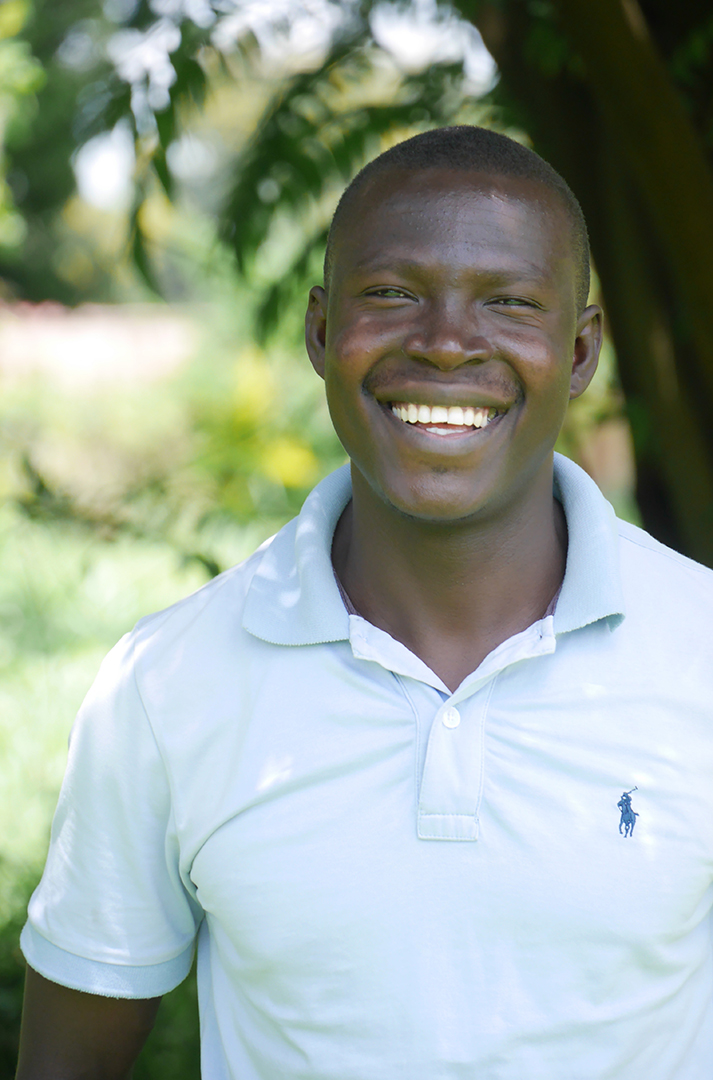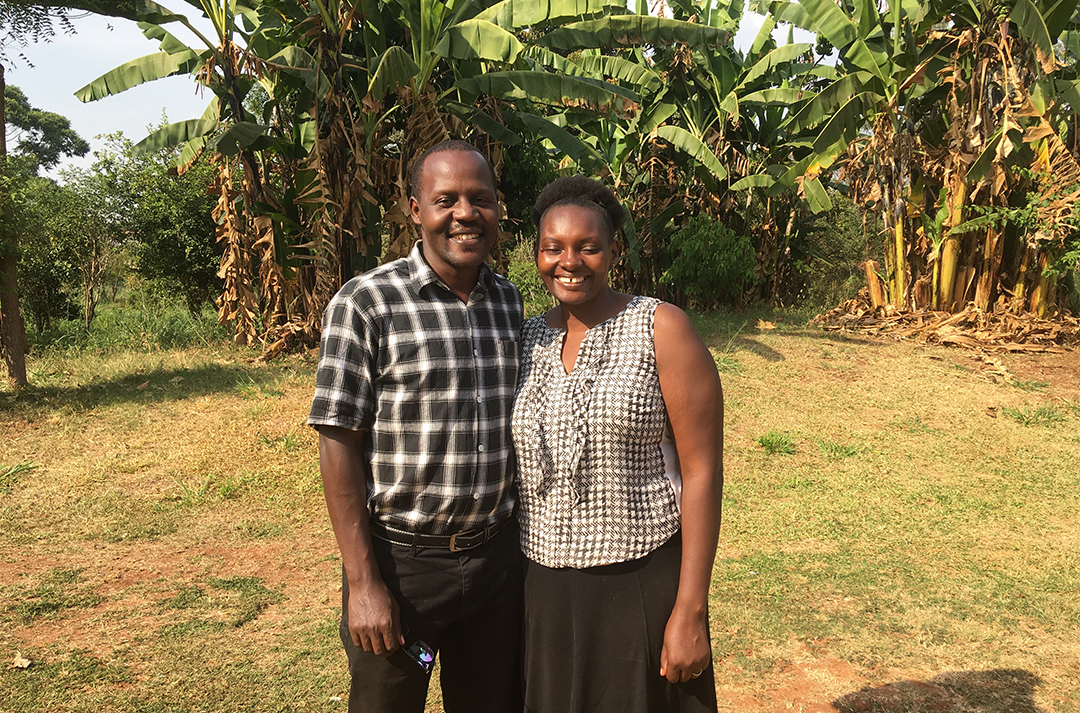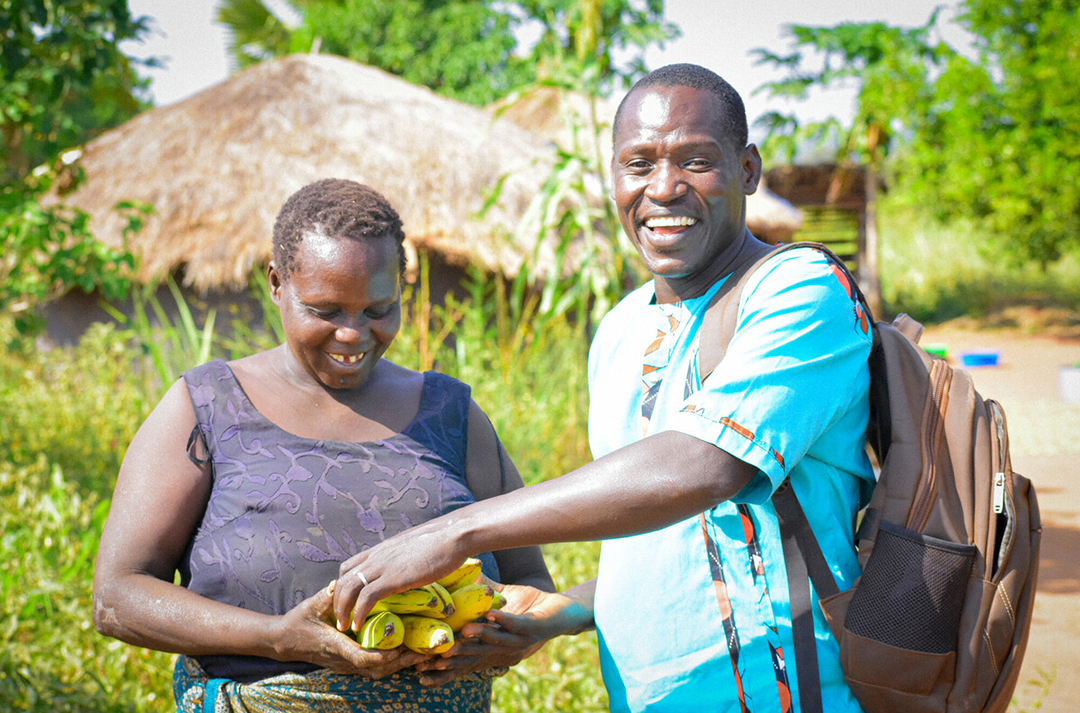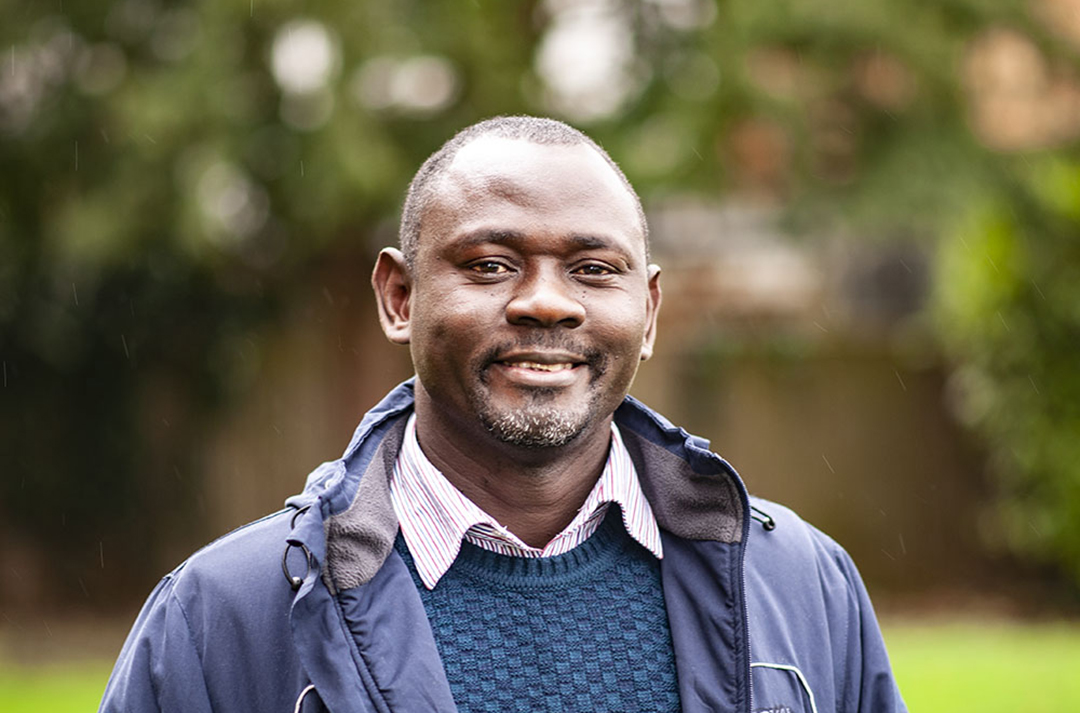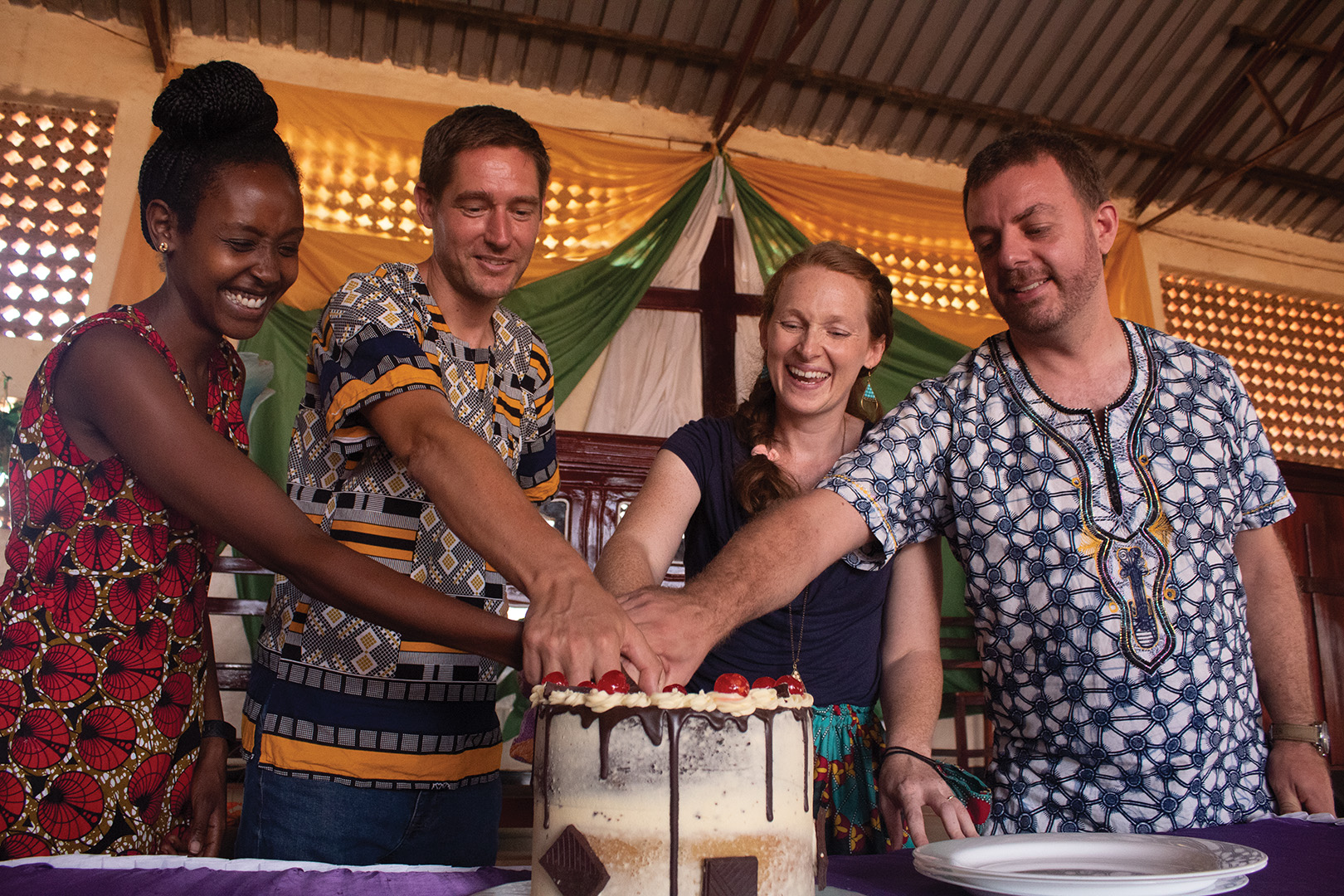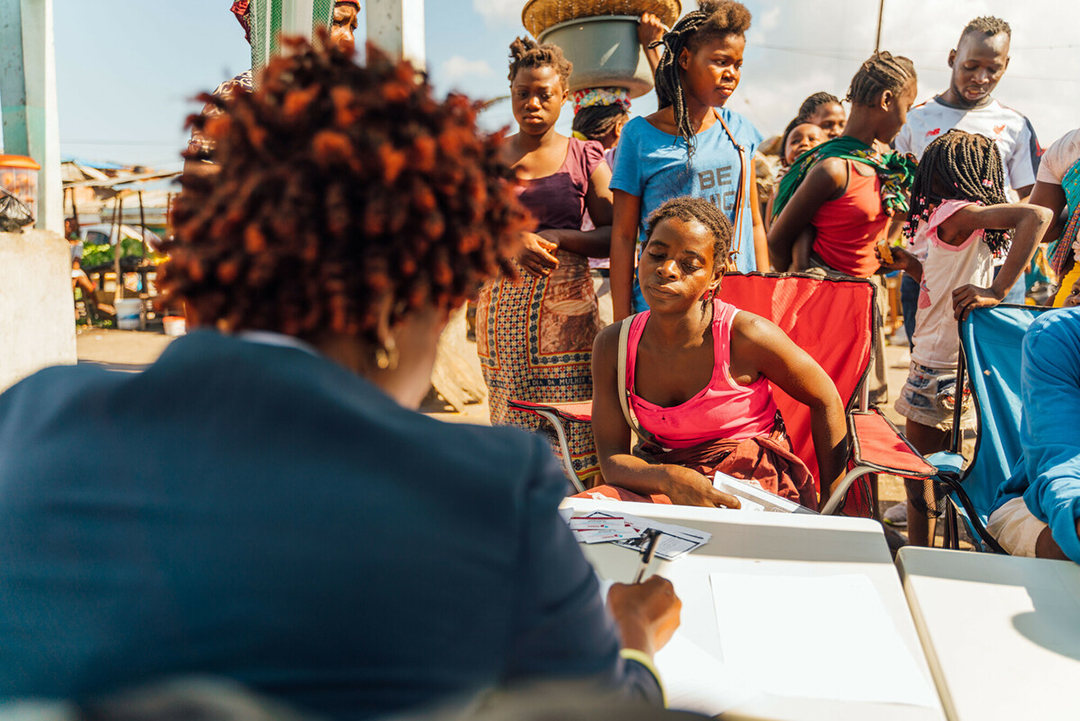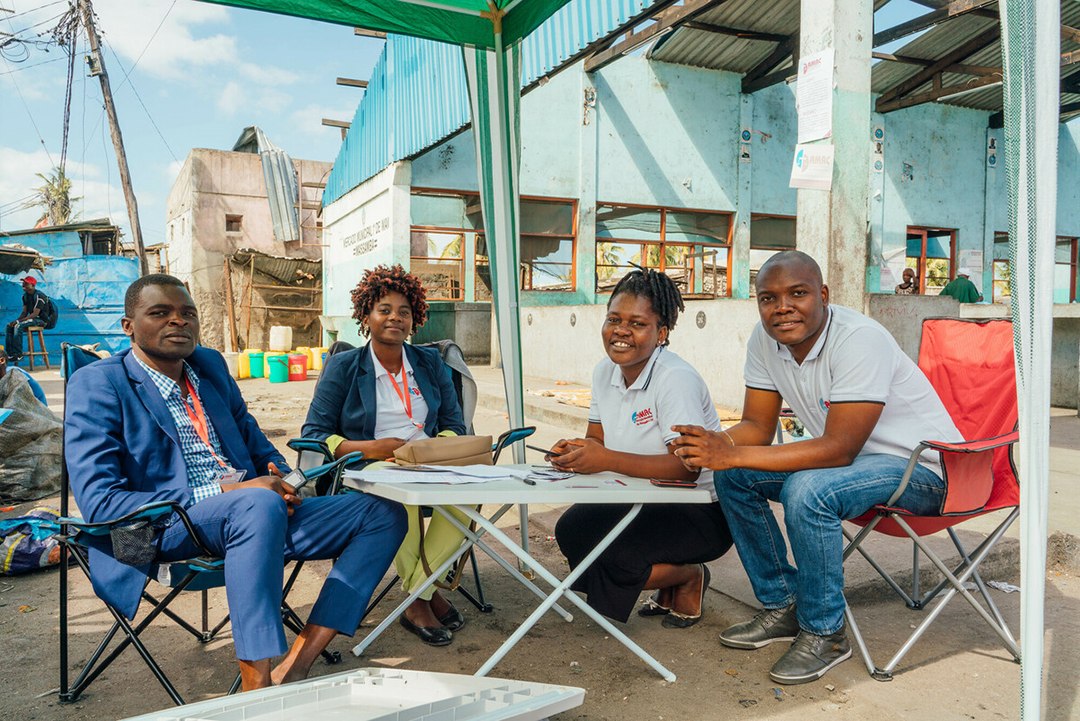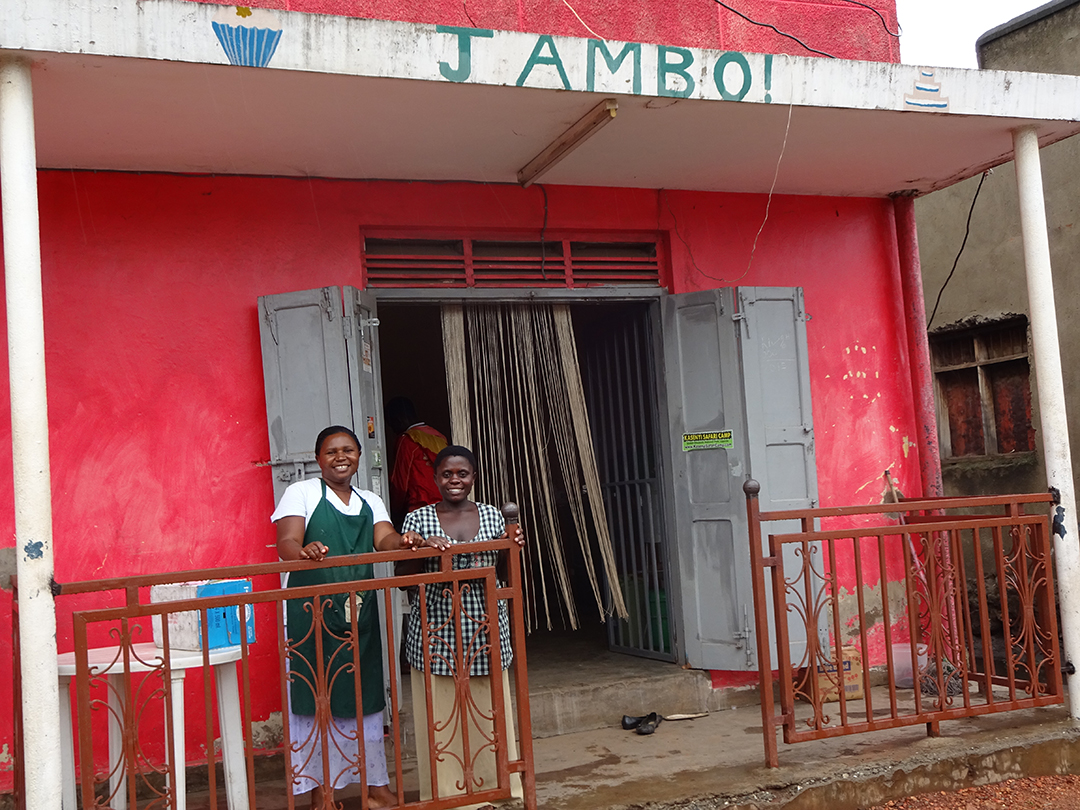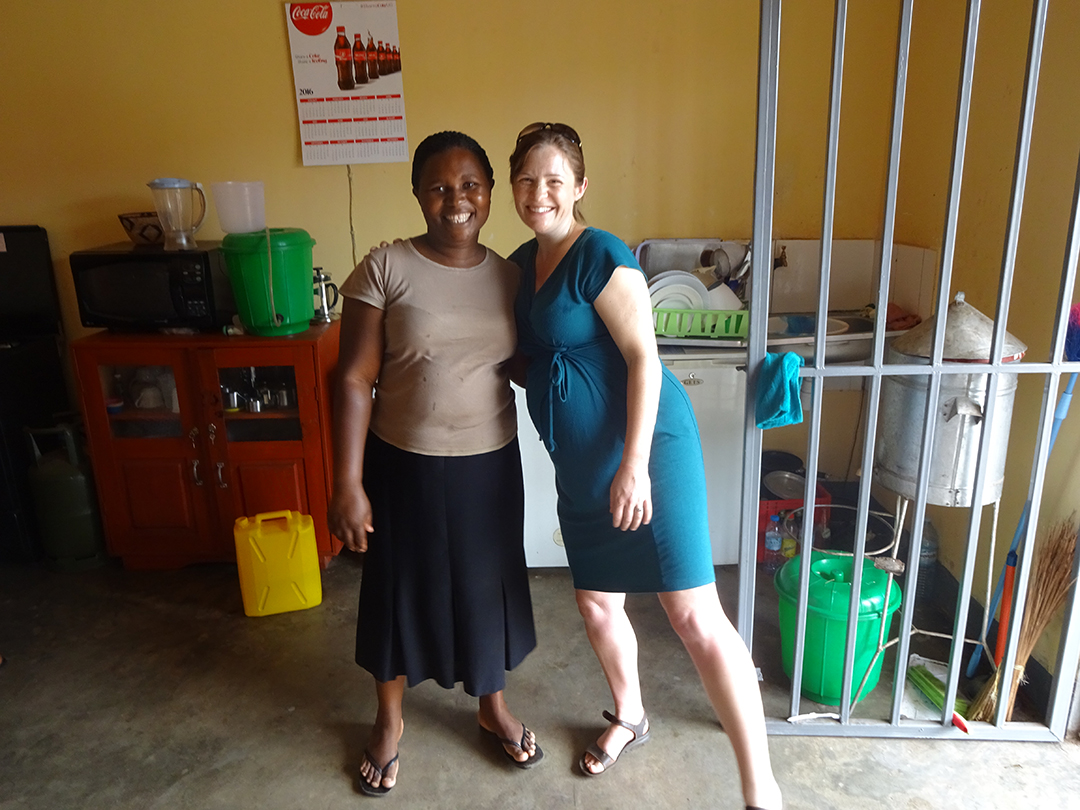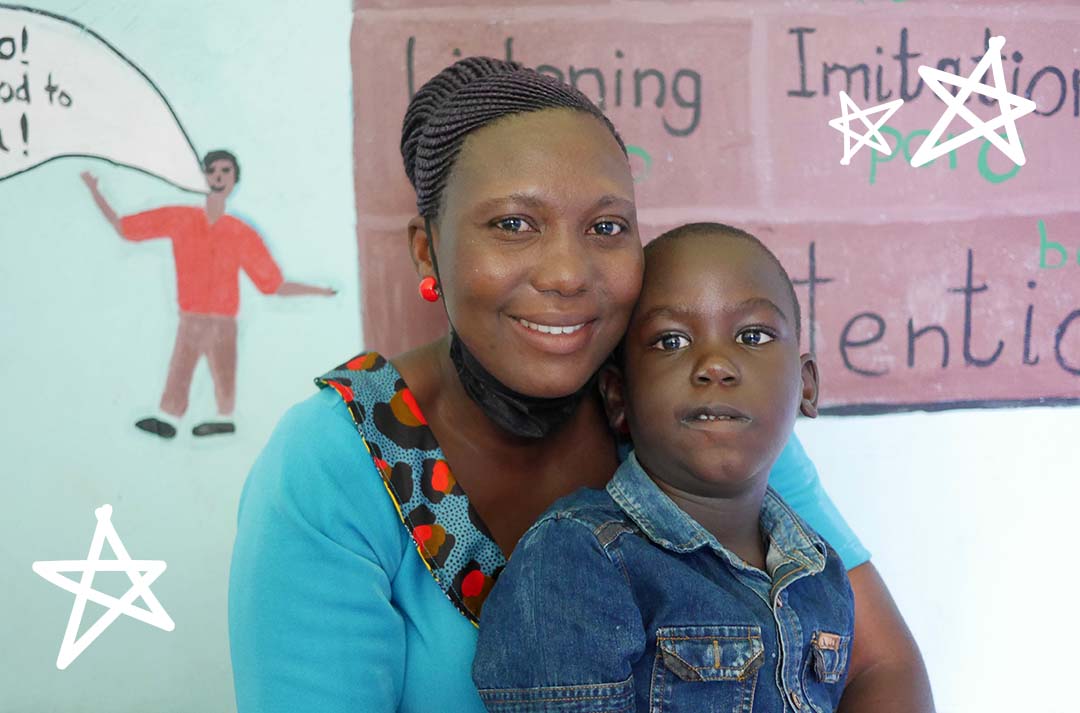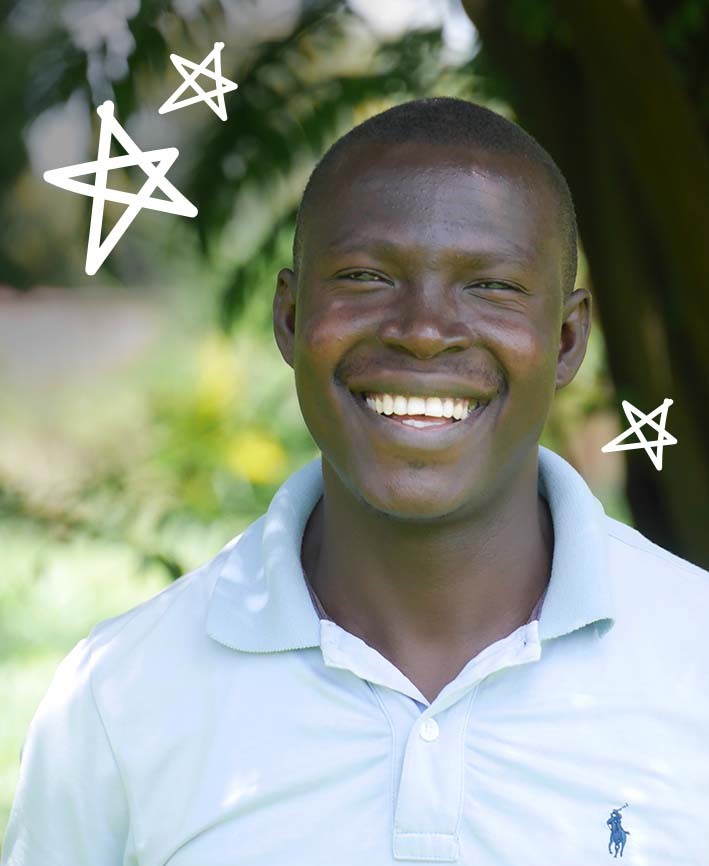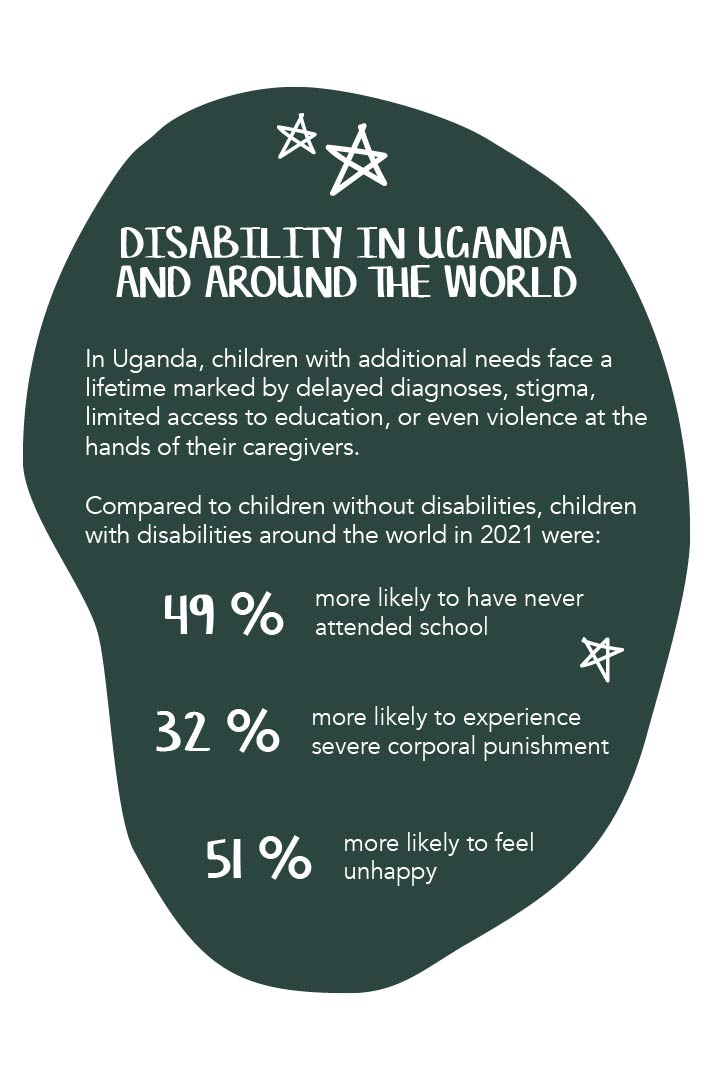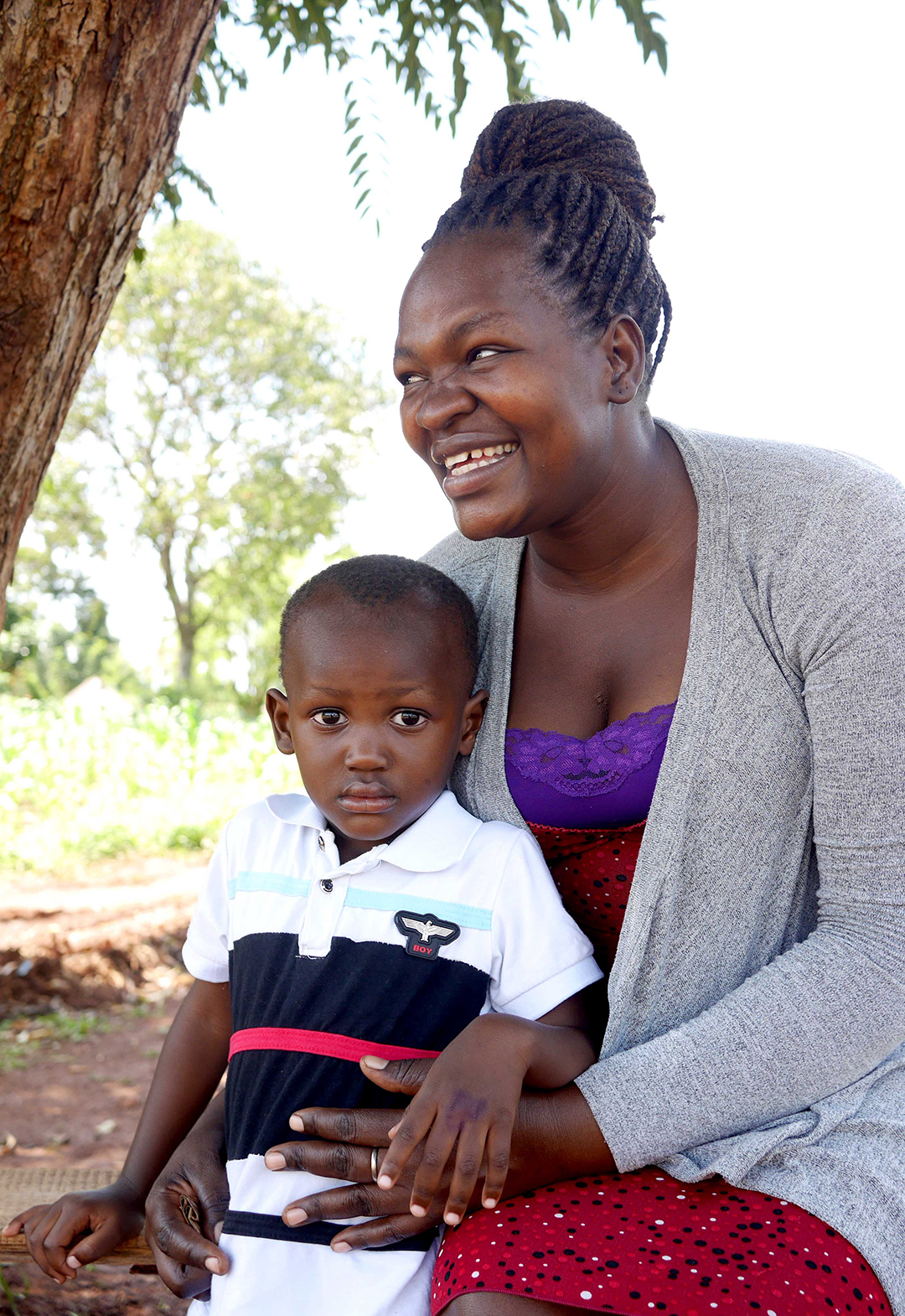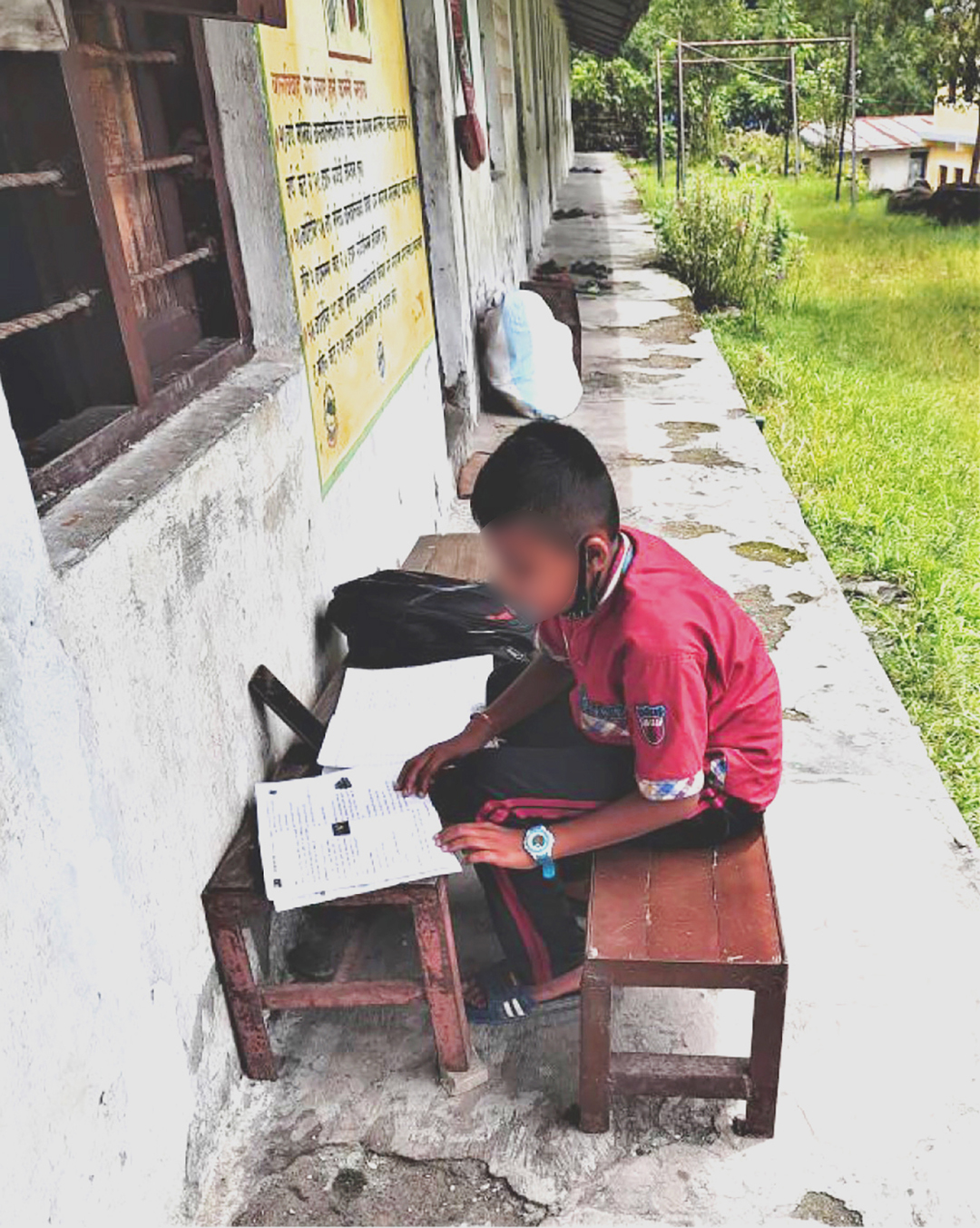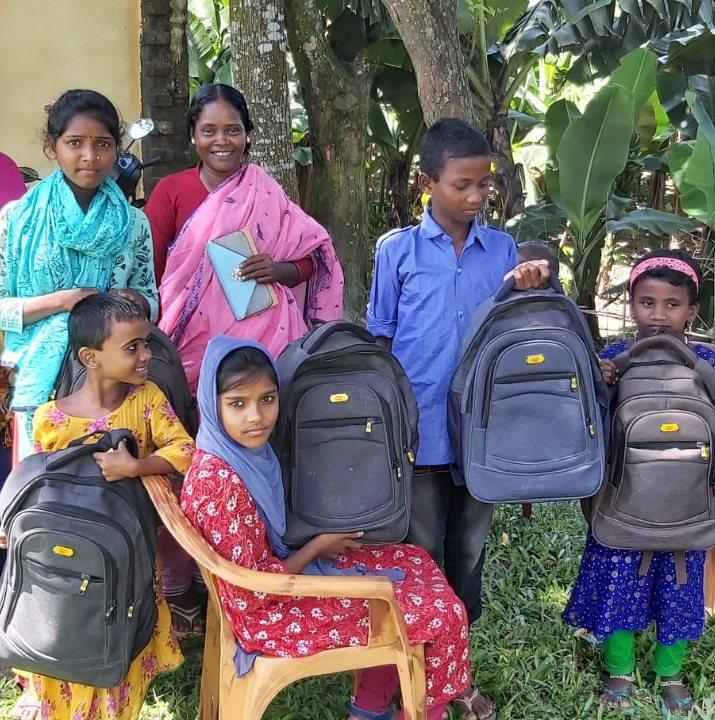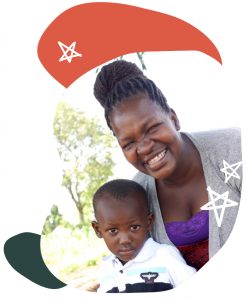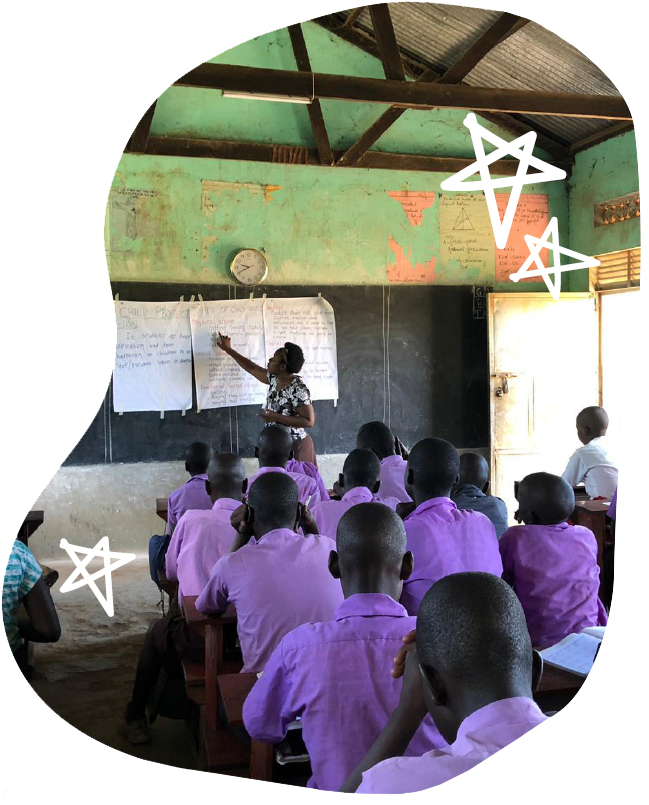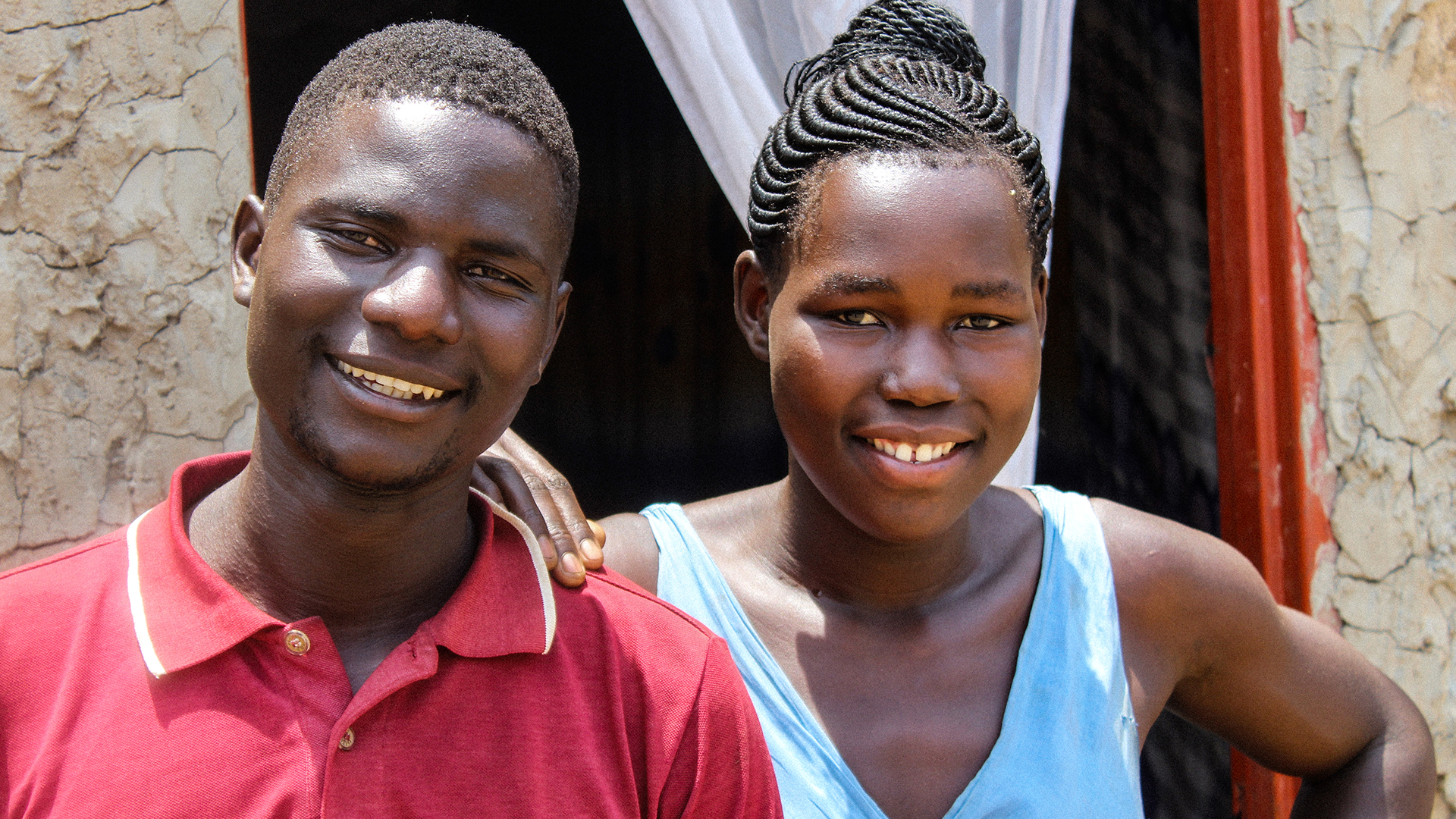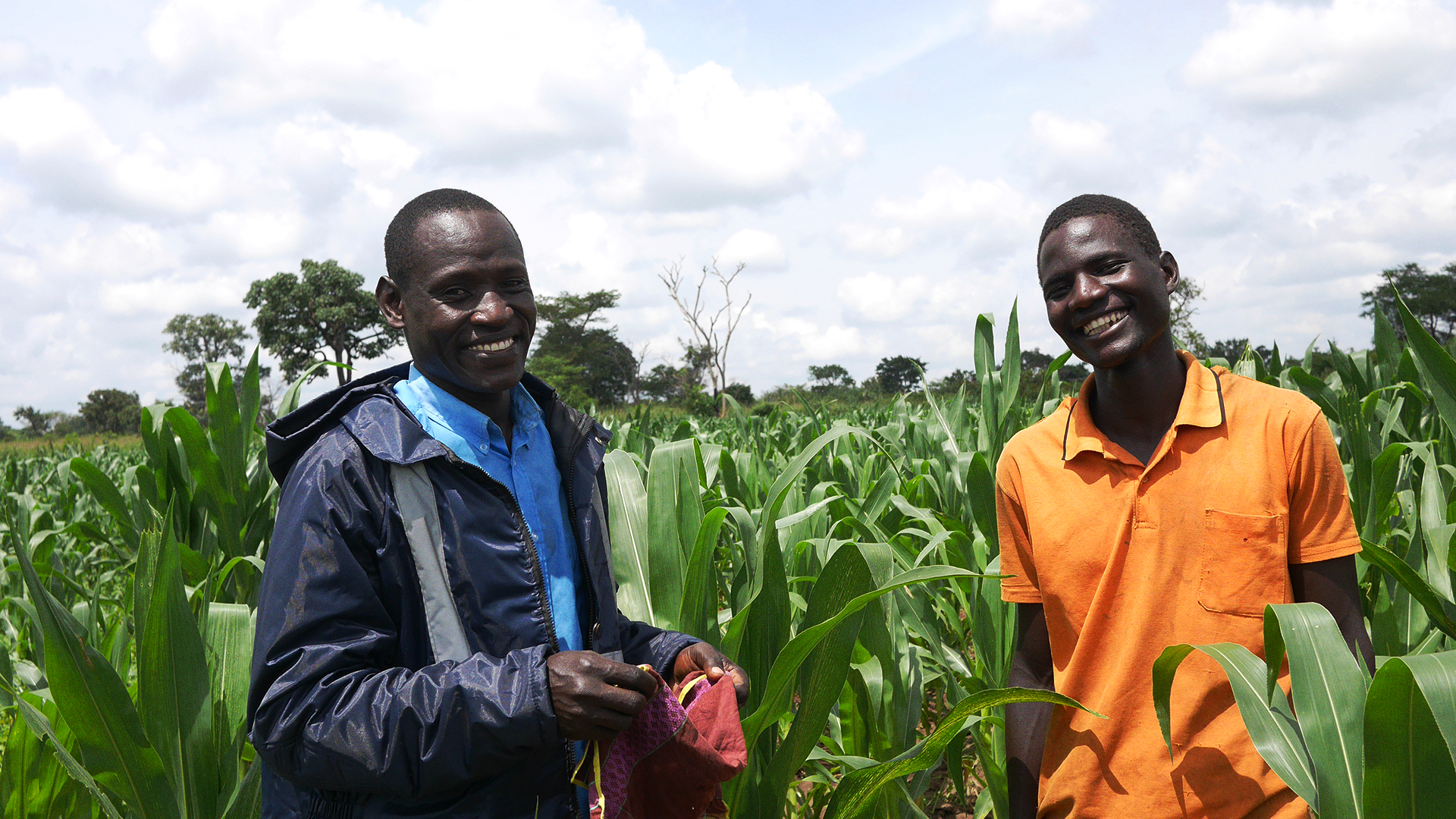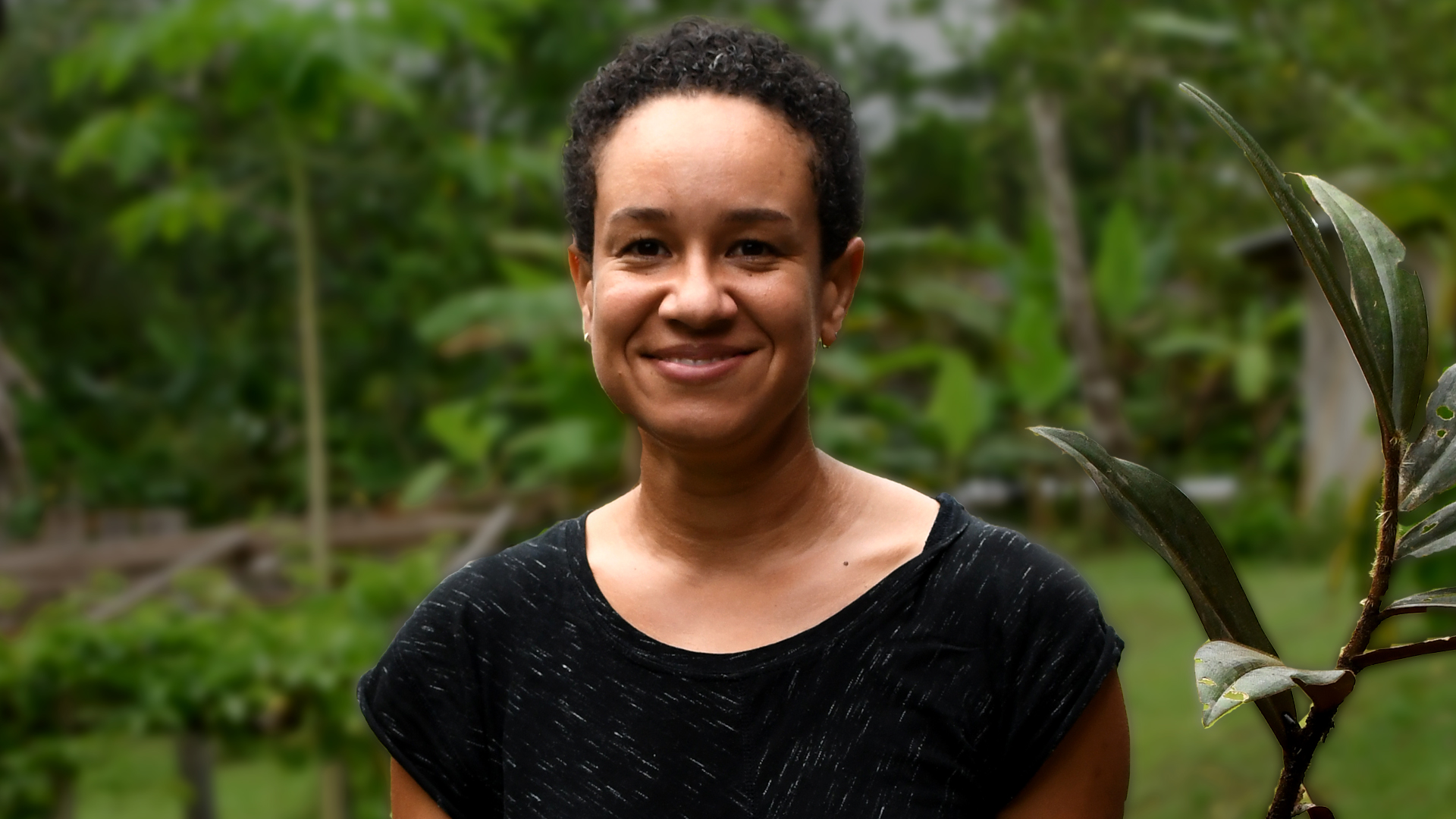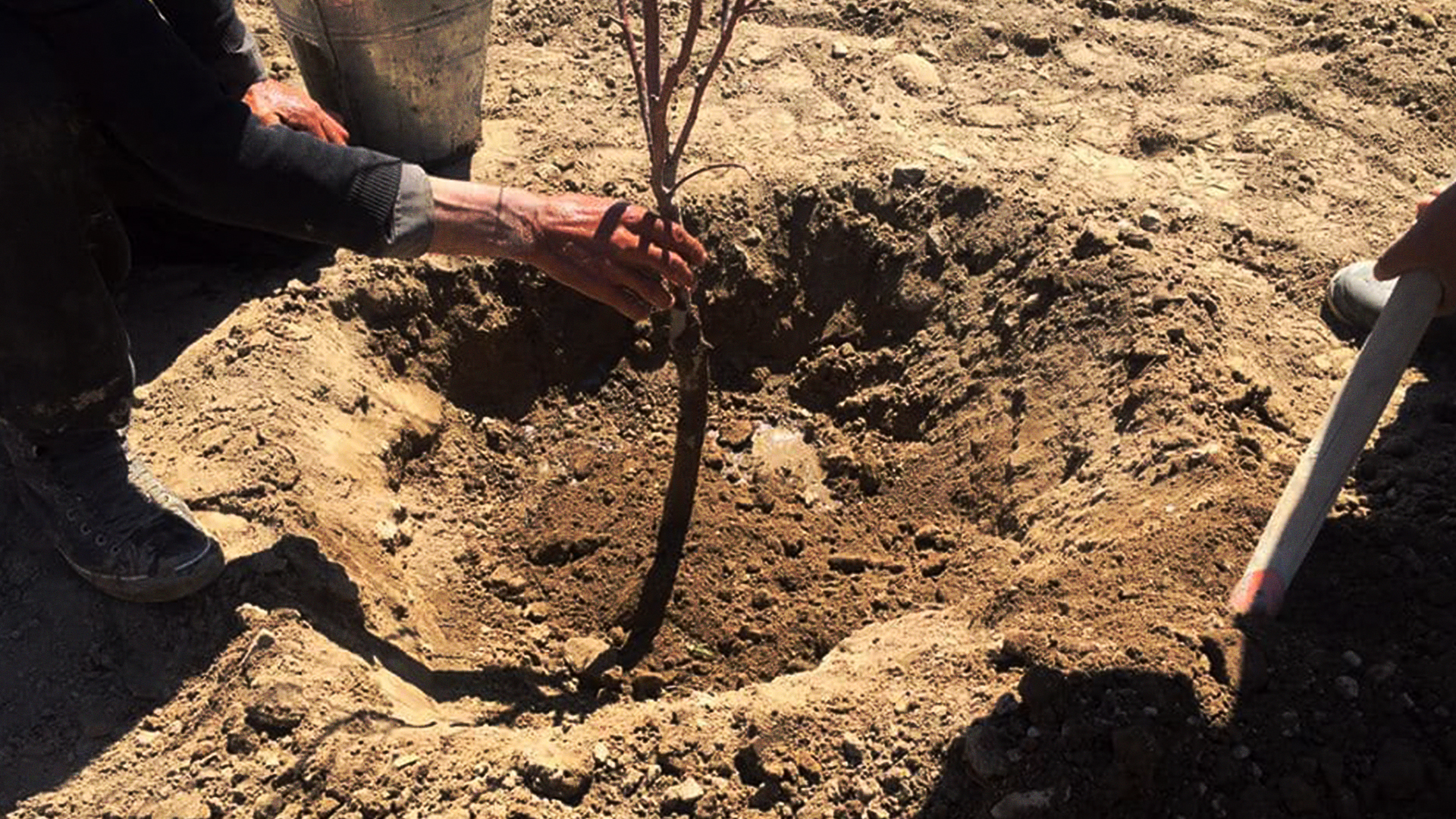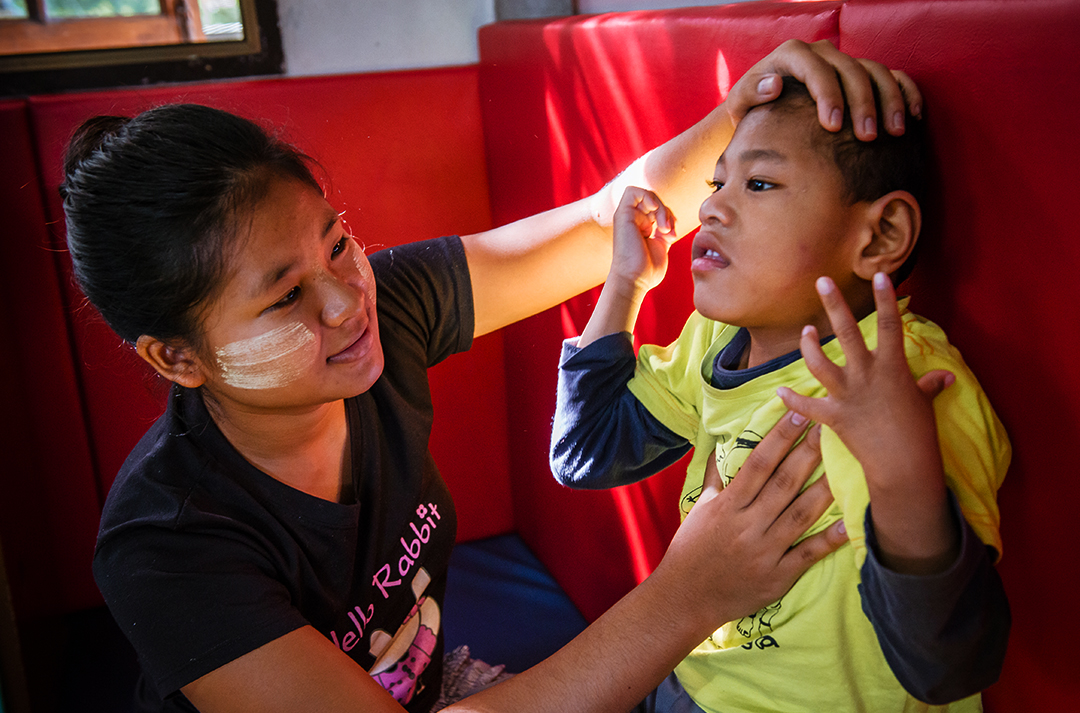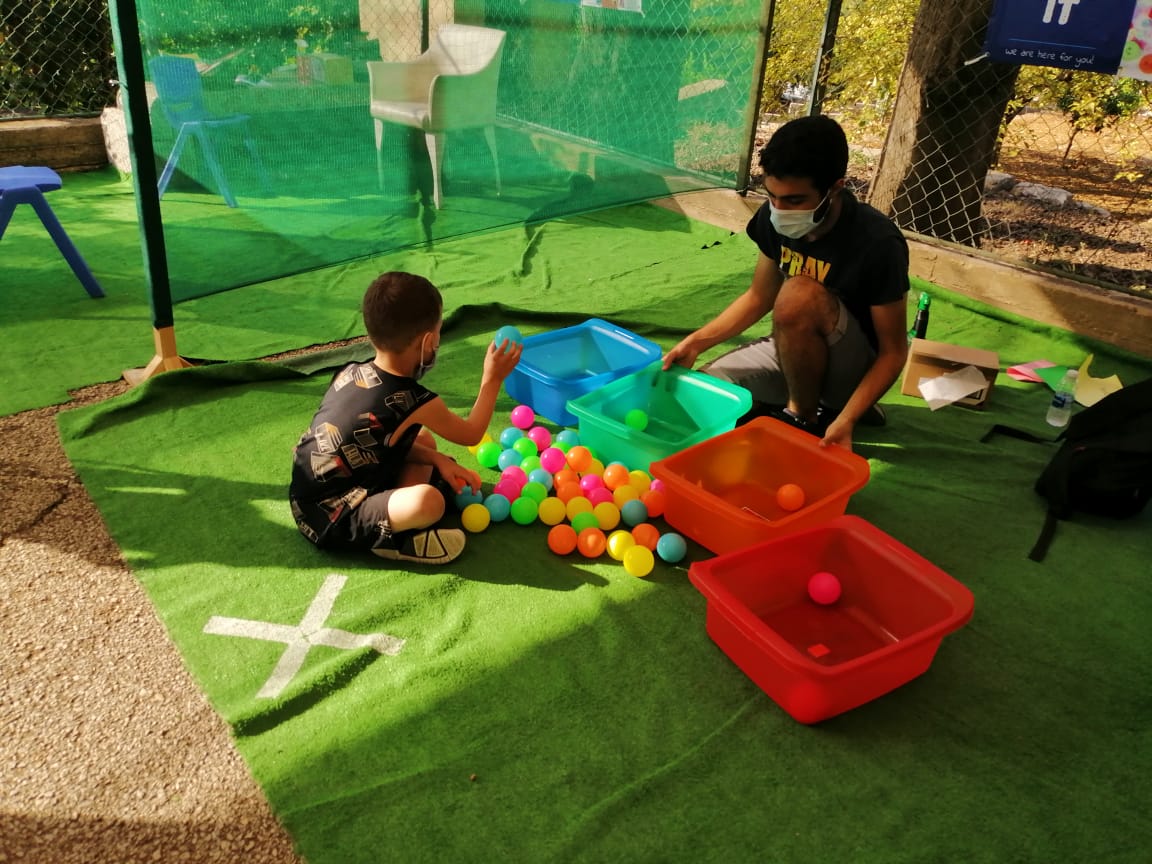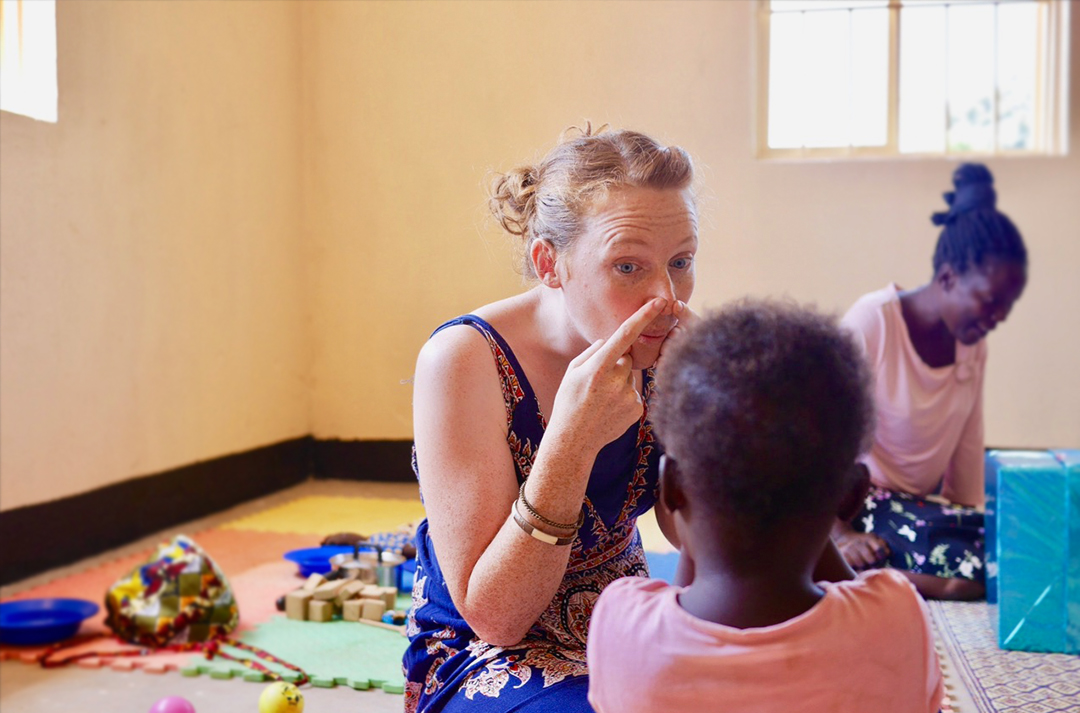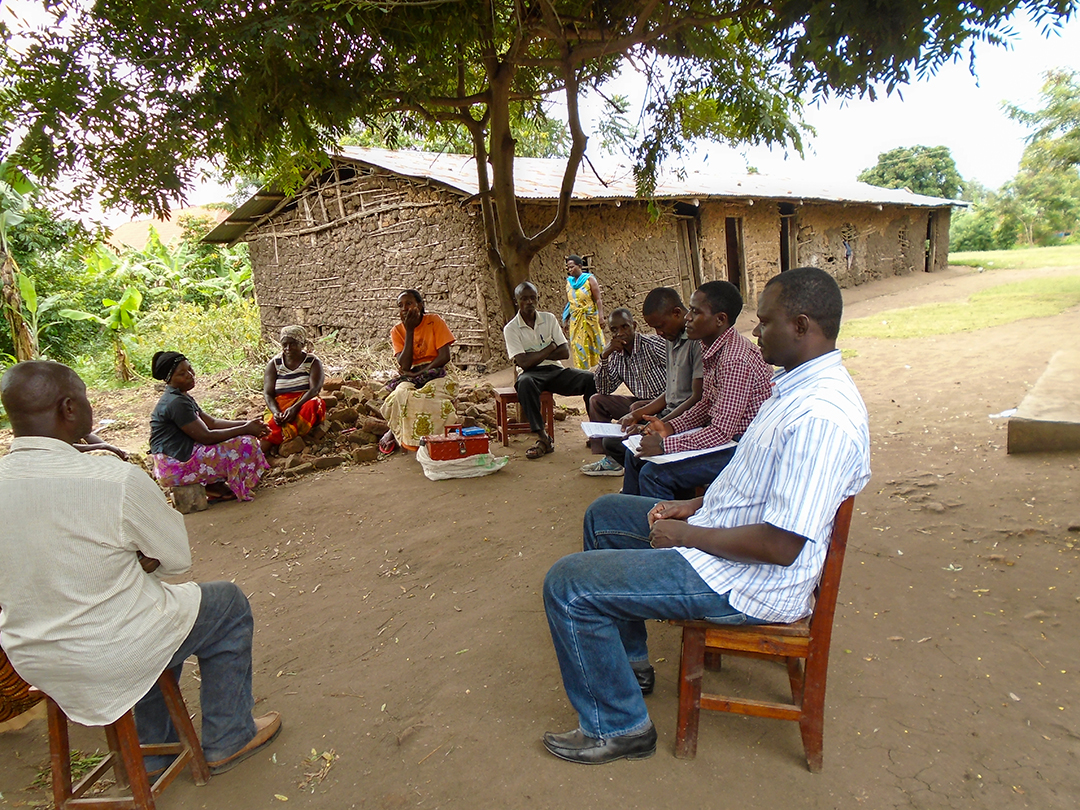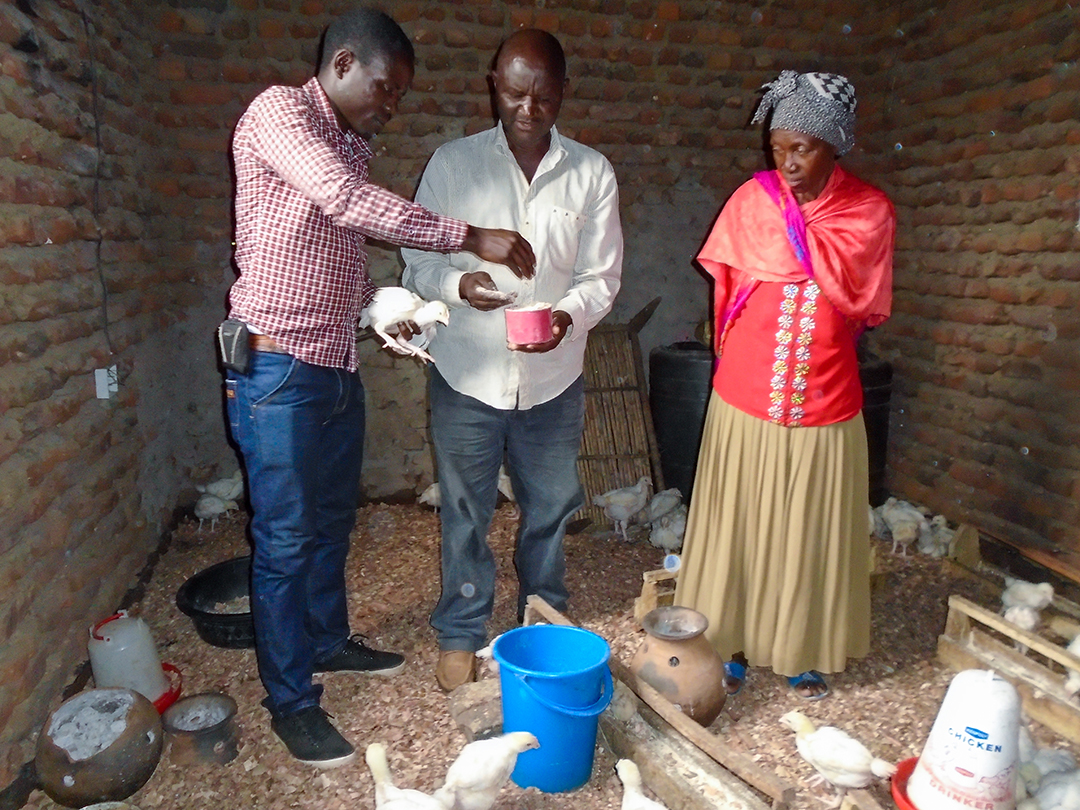A passion for passionfruit: ending poverty in Uganda
A passion for passionfruit:
ending poverty in Uganda
When it comes to passionfruit, Siwako Muhindo knows exactly what he’s looking for. Ripe fruits are heavy and firm, with smooth purple skin. If you cut one of them open, you can see the orange flesh inside – sweet, fragrant and perfect for lifting your family out of poverty.
Siwako Muhindo and his wife Jane Biira earn 60,000 Ugandan shillings a month from selling passionfruit – more than enough to buy food for their seven children and pay for their school fees. But back in 2021, life looked very different for Siwako and Jane.
“I always looked down on myself, and the community around me could not value me because of my poor financial situation,” says Siwako. “Most of the time my children would not attend school because I could not afford to provide them with enough materials, and I failed to pay the fees. I used to wake up early in the morning to find work in other people’s gardens to be given food to feed my family. Sometimes when I failed to find work my family would starve or have one meal a day – a bad situation that troubled me for many years.”
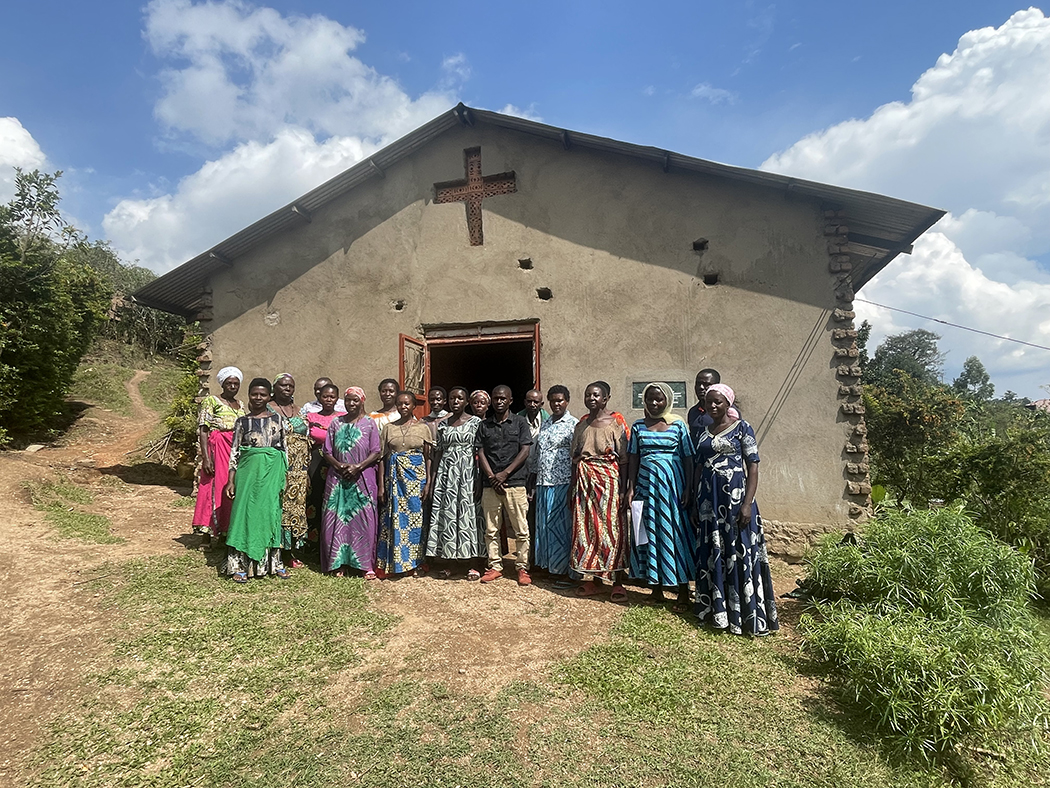
One day, Yofeli Muhindo, who works for a partner of BMS World Mission in Uganda, told Siwako and Jane about a local village savings group. People living in poverty often can’t afford the interest rates on loans from a bank, and banks aren’t prepared to risk lending to them. Village savings groups bring people together every week to save up small amounts of money so that villagers can take out affordable loans. The total money saved is then shared between group members at the end of the year. Siwako was so inspired by Yofeli’s message and he knew that a village savings group was the way to raise himself and his family out of poverty.
After only five months, Siwako could take out loans. Each group member also received 130,000 Ugandan shillings at the end of the year, which Siwako and Jane used to start a food stall. In 2022, the group shared 160,000 Ugandan shillings, which helped Siwako start his passionfruit business.
Now, Siwako and Jane have enough food to eat and can afford to send their children to school. Last year, the group even shared enough money for Siwako to buy a goat!
“The village savings group has really changed our life from a helpless situation where we could fail to provide food and other needs for our family,” says Siwako. “We are now respected in our community, and people have seen a big change in our lives. We are greatly encouraged to save more as we see a bright future ahead.”
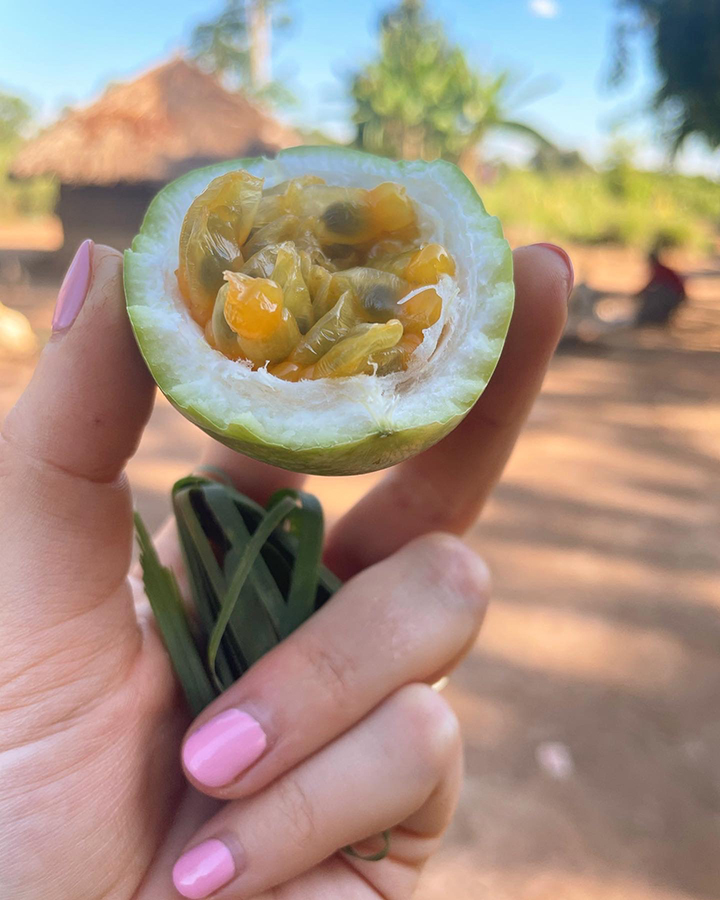
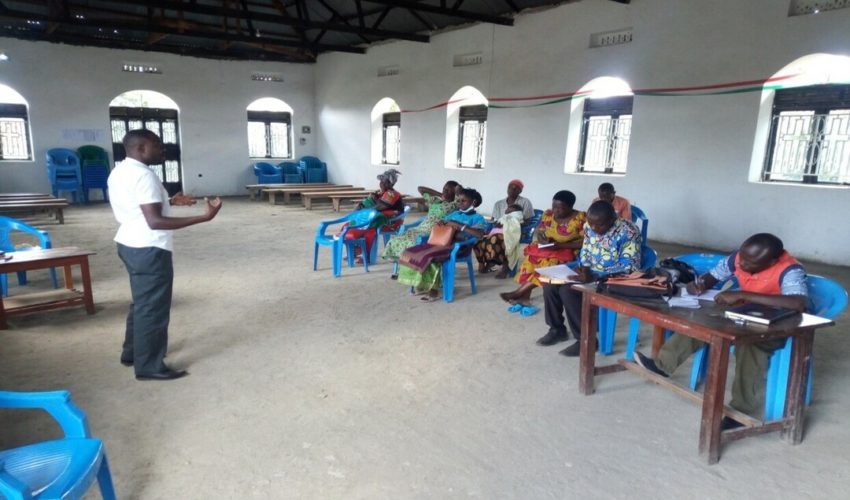
But Siwako knows that none of this would have been possible without God working through the local church. “We praise God for the wonders he does in our lives through his people. God bless the Kasese Association of Baptist Churches Development Committee, Justice Livelihoods Health, and BMS for the good work and support they have offered to transform my life and my entire family.”

Your generous giving and faithful prayers have made such a difference to the lives of people like Siwako and Jane. They are so grateful for your support, and for the love shown to them by our partners. If you would like to keep giving to the work of BMS’ partners in Uganda, then why not consider becoming one of our 24:7 Partners.
Words by Chris Manktelow

